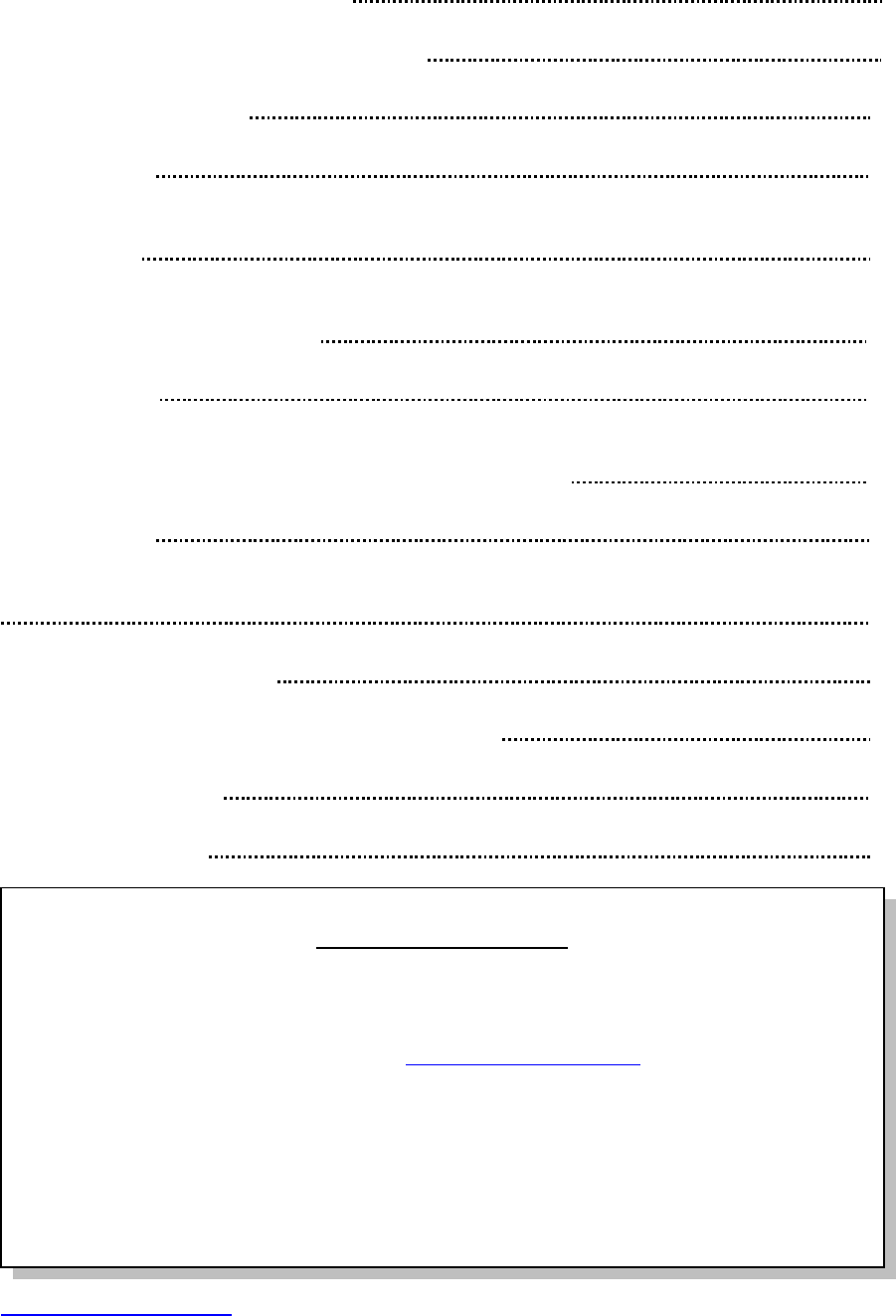
Career Planner Johns Hopkins Bloomberg School of Public Health
http://www.jhsph.edu/careers JHSPH.Careers@jhu.edu
1
RESUMES AND CURRICULUM VITAE 3
RESUME AND CURRICULUM VITAE SAMPLE 4
STRONG ACTION WORDS 13
COVER LETTERS 14
Your Written Introduction
NETWORKING 16
Your Most Effective Job Searching Tool
NETWORKING IN A DIGITAL AGE 19
JOB SEARCHING 20
Strategies and Where to Look
JOB SEARCH STRATEGIES FOR INTERNATIONAL STUDENTS 21
INTERVIEWING 23
It’s All About “Fit”
BEHAVIORAL INTERVIEWING 26
CAREER FAIR PREPARATION 27
HOW TO APPLY FOR INTERNSHIPS & FELLOWSHIPS 28
SALARY NEGOTIATION 30
FOLLOW-UP LETTERS 32
Career Services Office
615 N. Wolfe Street, Suite W1600
Baltimore, MD 21205
410-955-3034 ● JHSPH.Careers@jhu.edu
Monday – Friday, 9:00 AM – 4:30 PM
Paul Hutchinson, Director, Career Services
Caroline Kelly, Assistant Director, Career Services
Olivia Cross-McCants, Assistant Director, Career Services

Career Planner Johns Hopkins Bloomberg School of Public Health
http://www.jhsph.edu/careers JHSPH.Careers@jhu.edu
2
CAREER SERVICES OFFICE
VISION STATEMENT
• Every graduate has the opportunity to protect health and save lives millions at a time.
MISSION STATEMENT
The mission of the Career Services Office is to:
• Help students make a powerful impact in public health by connecting to opportunities beyond the classroom
through:
o enhancing career/professional development engagement
o coordinating experiential learning experiences
o engaging with public health employers and alumni
STUDENT AFFAIRS
Student Affairs (SA) is a comprehensive student services unit in the Johns Hopkins Bloomberg School of Public Health that
provides advising to students, faculty and staff on academic policies, financial support and information management, and
helps to create linkages between the academic mission of the School and public health careers. SA brings together the
functions of several offices to serve a student from the time of initial inquiry through graduation and beyond:
• Admission Services
• Career Services
• Student Disability Services
• Financial Aid Office
• Office of Student Life
• Records and Registration
• Student Affairs Operations
The mission of Student Affairs at the Johns Hopkins Bloomberg School of Public Health is to foster student learning by
providing exceptional programs and services through an integrated team effort. This is achieved by promoting respect,
integrity, collaboration with the University community, and a commitment to the needs of a diverse population.
DIVERSITY AND INCLUSION STATEMENT
Johns Hopkins is a community committed to sharing values of diversity and inclusion in order to achieve and
sustain excellence. We firmly believe that we can best promote excellence by recruiting and retaining a diverse
group of students, faculty and staff and by creating a climate of respect that is supportive of their success. This
climate for diversity, inclusion and excellence is critical to attaining the best research, scholarship, teaching,
health care and other strategic goals of the Health System and the University. Taken together these values are
recognized and supported fully by the Johns Hopkins Institutions leadership at all levels. Further, we recognize
that the responsibility for excellence, diversity and inclusion lies with all of us at the Institutions: leadership,
administration, faculty, staff and students.
Questions regarding Title VI, Title IX and Section 504 should be referred to the Office of Institutional Equity,
Wyman Park Building, Suite 515, 3400 North Charles Street, Baltimore, Maryland 21218, (410) 516-8075, TTY
(410) 516-6225.
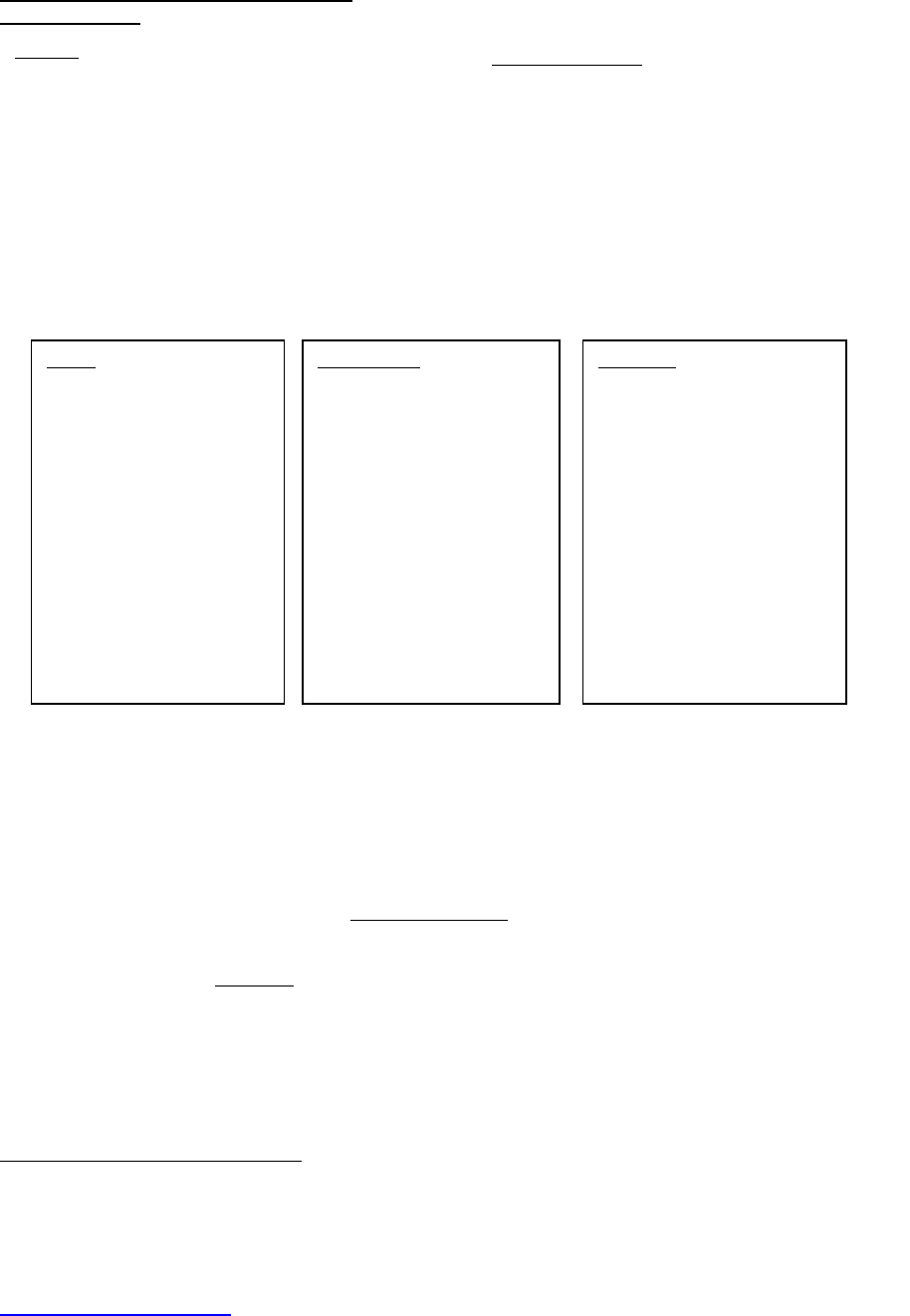
Career Planner Johns Hopkins Bloomberg School of Public Health
http://www.jhsph.edu/careers JHSPH.Careers@jhu.edu
3
RESUMES AND CURRICULUM VITAE
Key Characteristics
Top two things to remember about resumes
1. RELEVANCY – how relevant is the information about yourself to the position you are applying for?
2. CLARITY – how clearly can you present this information to the audience reading your resume/CV?
Resume Styles
Let’s explore each section of a resume:
Profile/Summary - Designed to draw in the reader and emphasizes your qualifications up-front. Short sentences supported
by content in your resume and match what the employer is looking for in a candidate
Education - Typically reserved only for degrees completed or to be completed. Be sure to include concentration (if
applicable), relevant coursework, capstone/thesis, and honors, etc.
Experience - Highlight your experience that is the most relevant to the audience receiving your resume. Also, label
different sections. Use action words to describe what you have done.
Professional Development - Designed to showcase all of the additional work and effort you have undertaken to develop
yourself professionally. It is a “catch-all” for various skills and activities such as computer skills, languages, memberships, etc.
Questions to ask yourself before you begin to create/revise your resume/CV?
1. Who is my intended audience? Answer: For-profit, non-profit, academia, research, etc.
2. What is my biggest selling piece? Answer: Your degree!!!
3. What resume format do I want use? Chronological or Functional or Hybrid? Answer: Hybrid is often most effective.
4. How many pages should it be? Answer: More than one page is acceptable!!
Tips for Writing Successful Resumes/CVs
1. Start with one base resume/CV to use as your master document which includes everything. Edit your master
document so it is tailored to the specific position you are applying for. Avoid “cookie-cutter” resumes/CVs.
2. Proofread, proofread, and proofread again. There should be no spelling or grammar errors in the resume/CVs.
3. Make your resume/CV easy to scan quickly – outline format. Convert to a PDF before submitting your application
RESUME
• Lean toward brevity
• Position-driven
• Have more than one version
• Strong emphasis on content & action verbs
•
Goal of a resume is to…
construct a professional identity
CURRICULUM VITAE
• Lean toward completeness
• Exposé of work life; a “living document”
• Continuous catalog
• Less emphasis on content & action verbs
• Goal of a curriculum vitae is to…
construct a scholarly identity
Chronological
• Reverse date order
(present to past)
• Particularly effective when
recent experiences are the
most relevant
• Emphasis on job titles and
organizational names
• Advantage: preferred
format for employers and
recruiters
• Disadvantage: most recent
experience might not be
most relevant or important
Functional
• Focuses on qualifications of
the individual
• Used to highlight
transferable skills &
experience rather than job
titles or organizations
• Generally used by individuals
with little experience
• Advantage: relevant training
and experience can be
grouped together
• Disadvantage: employers
cannot figure where/when
you gained your experience
Hybrid
• A combination of the
chronological and
functional formats
• Organizes past experiences
into functional headers
• Generally used by
individuals with divergent
backgrounds
• Advantage: Looks
chronological but relevant
experience can appear 1
st
–
great for PH students
• Disadvantage: Dates not
consistent
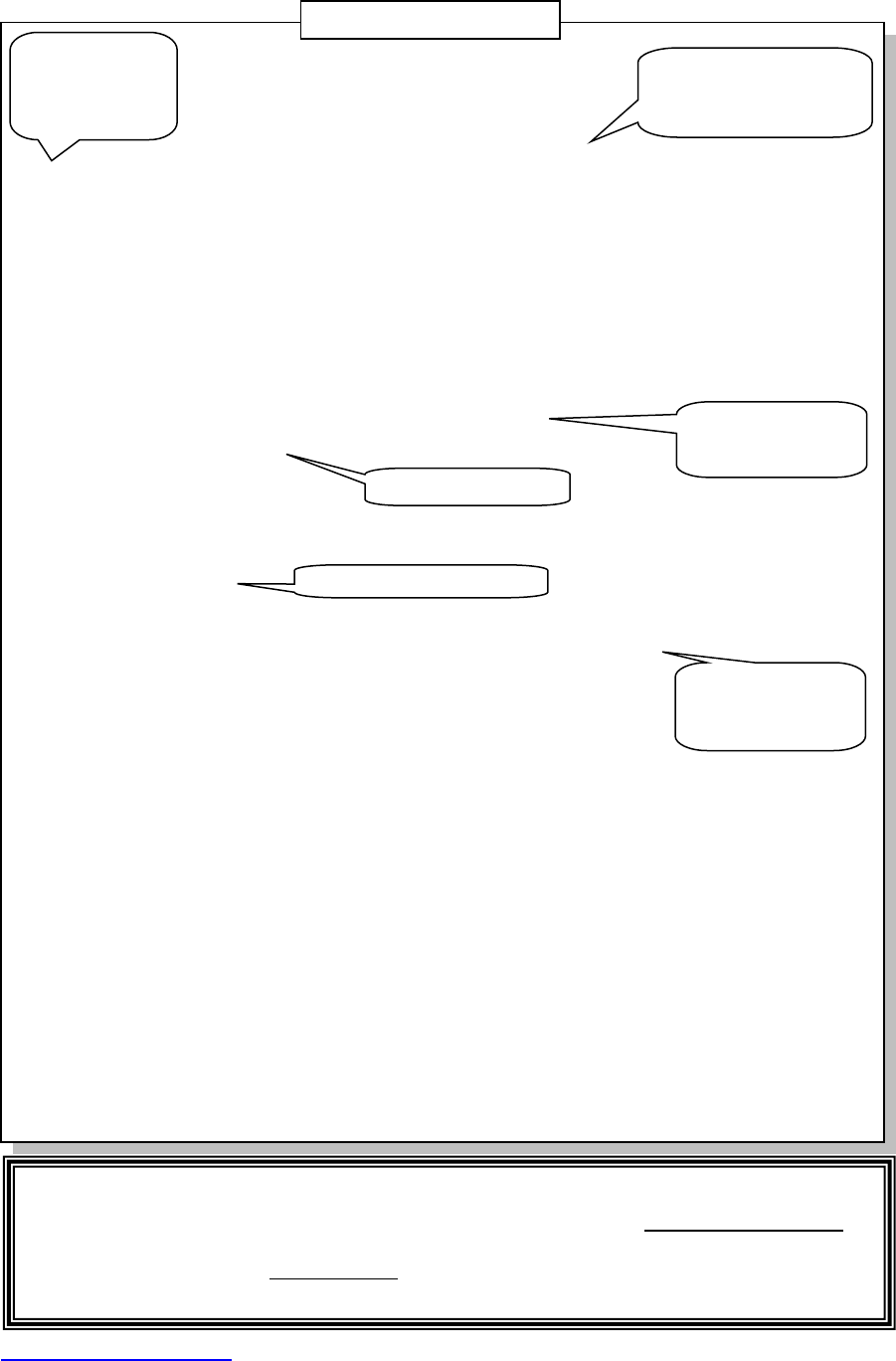
Career Planner Johns Hopkins Bloomberg School of Public Health
http://www.jhsph.edu/careers JHSPH.Careers@jhu.edu
4
John Hopkins
615 N. Wolfe Street
Baltimore, MD 21205
410-955-3333 ●
jhopkins@jhu.edu
PROFILE
Master of Public Health candidate concentrating in child and adolescent health. Health educator with over 6 years
experience in both domestic and international settings. Researcher and community organizer with a strong focus
towards improving the quality of life through health communication and cooperation with local governments. Fluent
in Spanish, French and Russian.
EDUCATION
Master of Public Health (MPH) Expected May 2022
Johns Hopkins Bloomberg School of Public Health, Baltimore, MD
Concentration: Child and Adolescent Health
Relevant Coursework: Principles of Human Nutrition, Prenatal & Infant Growth & Development,
Maternal & Child Health Legislation and Programs, Child Health and Development
Capstone: Data Analysis of Effective Child Nutrition Programs in LMIC
Honors: Sommer Scholar
Bachelor of Science in Biology May 2019
University of Georgia, Athens, GA
PUBLIC HEALTH EXPERIENCE
Health Educator/Treasurer Aug. 2021—Present
Latinos for Progress, Baltimore, MD
Latinos for Progress is a non-profit organization focused on providing Hispanic health outreach services, including HIV/ AIDS
prevention and diabetes/ obesity prevention
.
• Administer HIV/AIDS testing for Baltimore’s Latino population
• Counsel participants on health issues and help navigation of the public health system
• Act as a Spanish-English Translator for participants and medical staff
• Provide health and legal information and support to callers
• Manage 3 multi-thousand-dollar grants
• Serve as member of the executive committee and of the Community Health Advisory Board
Internal Team Coordinator July 2020 – July 2021
Bhutan Practicum Project in Health, Baltimore, MD and Thimphu, Bhutan
• Oversaw group preparations for a trip to work with the Bhutan Ministry of Health
• Exchanged maternal and child health related information with Bhutanese counterparts
• Prepared grant proposals and requests of support
Rural Health and Sanitation Volunteer Oct. 2017 – Aug. 2020
Peace Corps, Colonia Takuare, Paraguay
• Co-led national HIV/AIDS conference and training
• Designed and facilitated health training and authored a manual for teachers
• Taught classes on nutrition, dental health, intestinal parasites, and reproductive health
• Collaborated with health post on reproductive health and vaccination programs
• Developed 3 pilot programs to improve site development and communication processes
Hybrid Style Resume - MPH
Tip: Think of the
profile as your “30
second commercial”
or “elevator speech”
on paper.
Tip: Be sure to have a
professional sounding voicemail
message and professional
looking email address.
Tip: Include relevant
coursework to highlight
your academic training.
Tip: Add Capstone title.
Tip: Bold your degree and job titles.
VIRTUAL RESUMANIA
Need help in writing, revising and/or creating your resume/CV? Look out for VIRTUAL RESUMANIA!!!
During this event, career services staff and public health professionals will provide quick, short-term
resume feedback and advice. Can’t join us??? You can always schedule a coaching appointment with
the Career Services Office to schedule an in-depth resume review.
Tip: A short description of
organization can help the
reader better understand
where you worked.
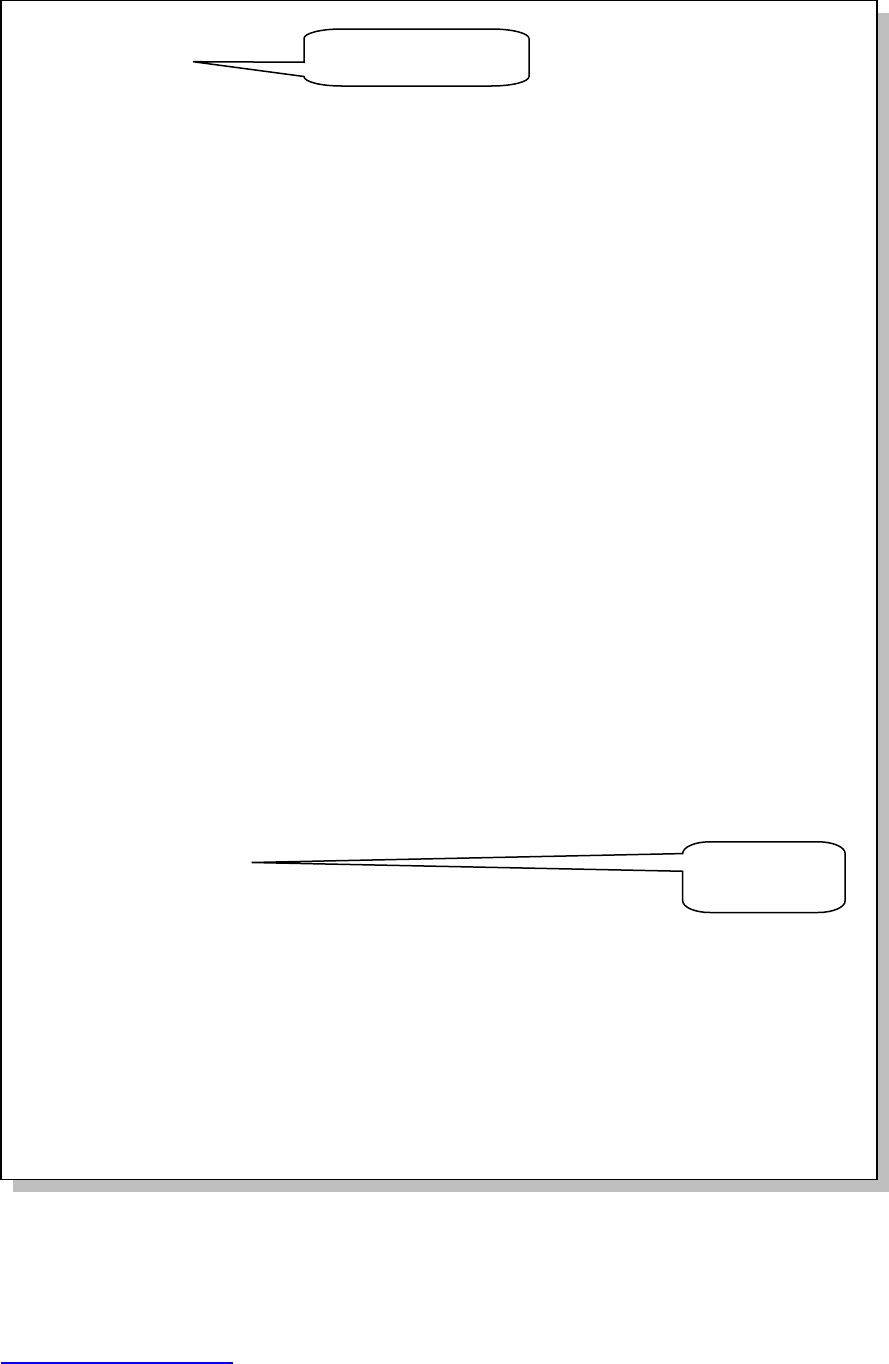
Career Planner Johns Hopkins Bloomberg School of Public Health
http://www.jhsph.edu/careers JHSPH.Careers@jhu.edu
5
John Hopkins, pg. 2
RESEARCH EXPERIENCE
Research Assistant Oct. 2021 – Present
Johns Hopkins Bloomberg School of Public Health, Baltimore, MD
• Collect, organize and compile of all data pertaining to project sponsored by Food & Drug Administration
• Assist in the organization and development of expert panel on measuring quality indicators
• Coordinate various sources of patient information to inform symposium focus
Faculty Research Assistant Sept. 2019– July 2020
University of Maryland, College Park, MD
• Assisted in managing the Child Development Lab in the Department of Human Development
• Developed working relationships with a portion of the 600 participants and their families
• Scheduled annual visits with the families
• Administered visits with participants who ranged from 2 to 6 years of age
• Managed and trained 25 undergraduate research assistants
• Cultivated a number of research skills including project design, data collection through questionnaire
administration, behavioral assessments, and data entry
• Computed composite scores based on questionnaire data
TEACHING/TRAINING EXPERIENCE
Trainer Spring 2019
Area Primary Schools: Nghezimani, South Africa
• Created and led teacher workshops on integration of HIV/AIDS into future curriculum
• Developed and presented lesson plans for life skills, family planning and HIV/AIDS prevention for host-
country national students at a local secondary school
Pre-School Facilitator Fall 2018
El Círculo de Recreación y Aprendizaje: Santa Isabel, Quito, Ecuador
• Assisted and often led class of twelve 3–6-year-olds
• Developed the children’s social, language, hygiene skills
• Taught two 4th grade classes of 35 students in history, math, and science
PUBLICATIONS/PRESENTATIONS
Hopkins, J. Coylew, M.J., Dirbed, C. “The Future of Health Services: Summary of Experts,” e-Health. 2020 June; 13
(3):341-7.
Rosenstein, A.H., Hopkins, J., et al., “Emerging,” American Journal of Medical Quality. 2019 May-Jun; 22(3):164-9.
PROFESSIONAL DEVELOPMENT
Computer/Technical Skills: Stata (Intermediate); SPSS (Basic); Qualtrics (Advanced)
Languages: Spanish (Fluent); French (Conversational); Russian (Conversational)
Memberships: American Public Health Association (2021–Present); Global Health Council (2021-Present); Maryland
Public Health Association (2019-Present)
Travel Abroad: Paraguay, South Africa, Bhutan, Ecuador, Dominican Republic, Bangladesh, China, Peru, Colombia,
Costa Rica, Mexico, Ireland, Romania, Czech Republic, Hungary, Austria
Volunteer: Coordinator, JB Grant Child Survival Week (2021-Present); Crisis Counselor, Maryland Sexual Assault
Crisis Service (2018–2019)
Tip: Choose labels to describe
different types of experience
Tip: “Catch-all” for
anything else you
want in resume.
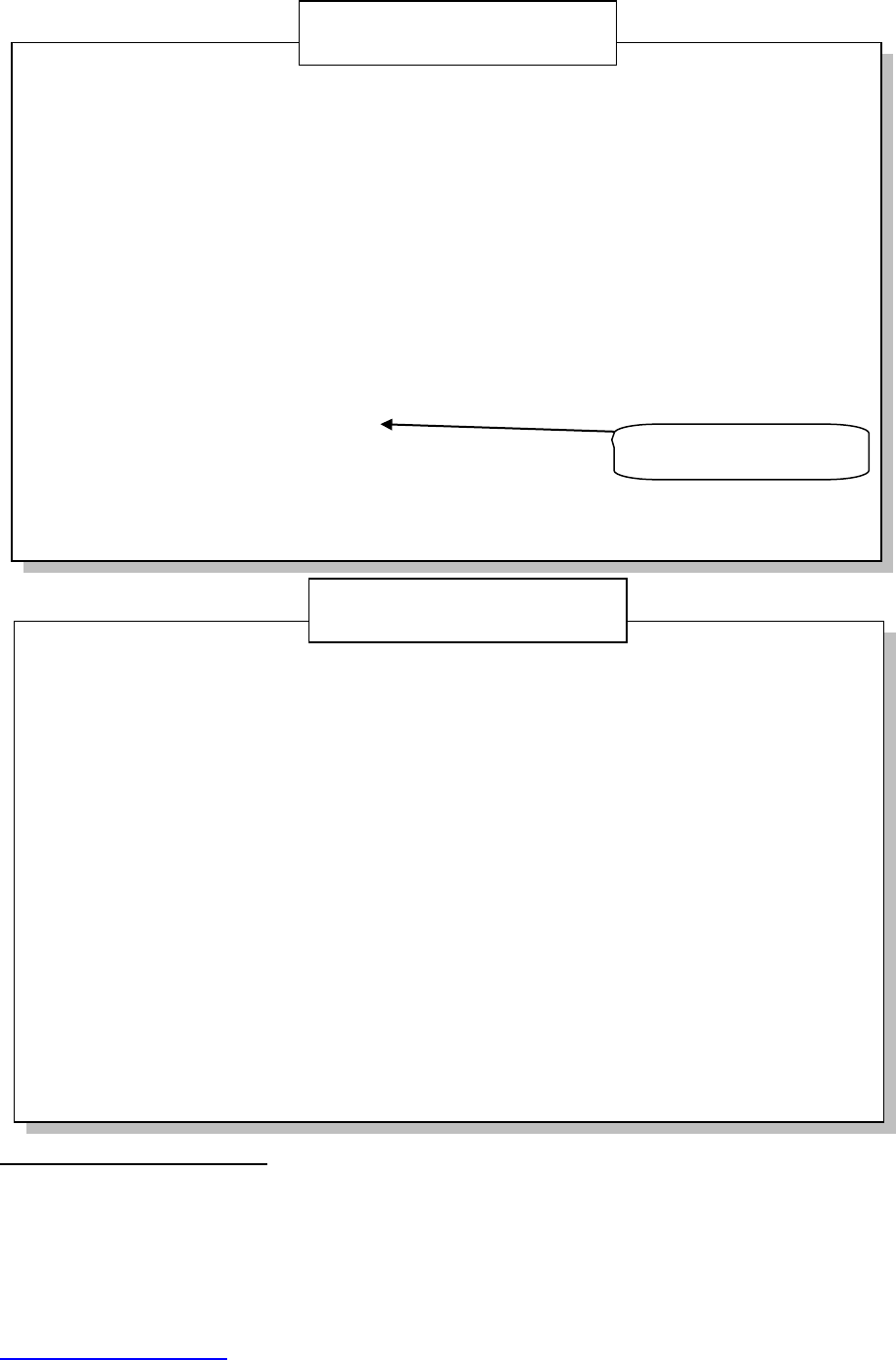
Career Planner Johns Hopkins Bloomberg School of Public Health
http://www.jhsph.edu/careers JHSPH.Careers@jhu.edu
6
Tips for a Writing Successful Resume
1. Start with one base resume to use as your master document which includes everything
2. Edit your master document so it is tailored to the specific position you are applying for
3. Avoid “cookie-cutter” resumes
4. Make your resume easy to scan quickly – outline format
5. Education = biggest selling piece!!!
6. Proofread, proofread, and proofread again. There should be no spelling or grammar errors in the resume
7. List a page number and your name on each additional page and convert to a PDF before submitting
John Hopkins
615 N. Wolfe Street
Baltimore, MD 21205
410-955-3333 ● [email protected]
PROFILE
Master of Science in Public Health candidate concentrating in child and adolescent health. Health educator with
over 6 years’ experience in both domestic and international settings. Researcher and community organizer with a
strong focus towards improving the quality of life through health communication and cooperation with local
governments. Fluent in Spanish, French and Russian.
EDUCATION
Master of Science in Public Health (MSPH) Expected May 2023
Johns Hopkins Bloomberg School of Public Health, Baltimore, MD
Concentration: Child and Adolescent Health
Relevant Coursework (to be completed by May 2022): Principles of Human Nutrition, Prenatal & Infant Growth & Development,
Maternal & Child Health Legislation and Programs, Child Health and Development
Thesis: Data Analysis of Effective Child Nutrition Programs in LMIC
Bachelor of Science in Biology May 2021
University of Georgia, Athens, GA
John Hopkins
615 N. Wolfe Street
Baltimore, MD 21205
410-955-3333 ●
jhopkins@jhu.edu
PROFILE
Master of Health Science (or Master of Science) candidate focusing in nutrition and child and adolescent health.
Health educator with over 6 years’ experience in both domestic and international settings. Researcher and
community organizer with a strong focus towards improving the quality of life through health communication and
cooperation with local governments. Fluent in Spanish, French and Russian.
EDUCATION
Master of Health Science (MHS) or Master of Science (ScM) Expected May 2022
Johns Hopkins Bloomberg School of Public Health, Baltimore, MD
Relevant Coursework: Principles of Human Nutrition, Prenatal & Infant Growth & Development, Maternal & Child Health
Legislation and Programs, Child Health and Development
Thesis: Data Analysis of Effective Child Nutrition Programs in LMIC
Bachelor of Science in Biology May 2021
University of Georgia, Athens, GA
Hybrid Style Resume – MSPH
Profile and Education sections only
Hybrid Style Resume – MHS or ScM
Profile and Education sections
Tip: Good way to show when
academic training will be completed.
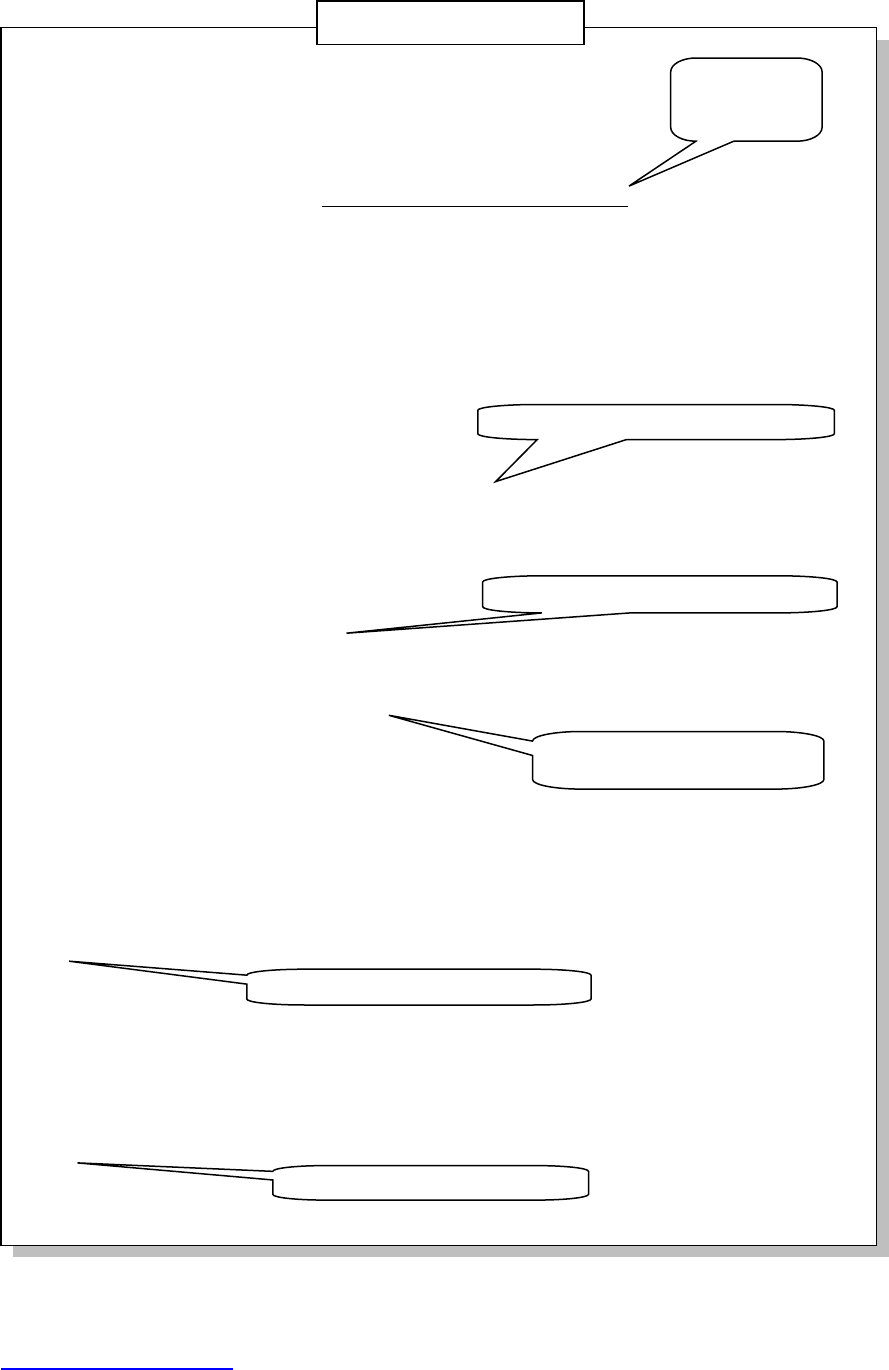
Career Planner Johns Hopkins Bloomberg School of Public Health
http://www.jhsph.edu/careers JHSPH.Careers@jhu.edu
7
Michelle Bloomberg
615 N. Wolfe Street, Baltimore, MD 21205
Mobile: 818-999-6555
Email: [email protected]om
LinkedIn: www.linkedin.com/in/michellebloomberg
PROFILE
Master of Science in Public Health student studying international health with a strong focus towards
global disease epidemiology and control and vaccine science and policy. Dedicated public health
professional with experience in both lab and applied research settings and expertise in:
• Epidemiology • Policy evaluation
• Data collection and analysis • Program implementation
• Working with cross-functional teams • Multilingual communication
EDUCATION
Master of Science in Public Health (MSPH), GPA: 3.97/4.0 Expected May 2023
Johns Hopkins Bloomberg School of Public Health (JHSPH), Baltimore, MD
Concentration (Track): Global Disease Epidemiology and Control
Relevant Coursework (to be completed by May 2022): 3 terms of Epidemiologic Methods, 4 terms of Biostatistics, Introduction
to International Health, Infectious Disease Epidemiology, Global Disease Control Programs and Policies, Foundations of Behavioral
Change Interventions in Developing Countries, Managing NGOs
Certificate in Vaccine Science and Policy Expected May 2022
Johns Hopkins Bloomberg School of Public Health, Baltimore, MD
Bachelor of Arts in Public Health, GPA: 3.7/4.0 May 2021
Widmore College, Widmore, IL
Honors: Phi Beta Kappa, Widmore Scholar
EXPERIENCE
Vice President Fall 2021 – Present
African Public Health Network, JHSPH
• Assist in student group oversight, volunteering, coordinating events and funding
• Serve on the 2021 World AIDS Day Planning Committee
• Coordinate a school-sponsored Run for Africa event
• Volunteer for Episcopal Refugee and Immigrant Center Alliance
Research Assistant July 2020 – Aug. 2021
Clinton Health Access Initiative (CHAI)
• Promoted the informed policy on HIV vaccine uptake in low income countries
• Assisted the communications team with material cataloging and updates
• Researched special topics such as modeling HIV supply/demand/cost
• Assisted with Project Premonition team to test a new mosquito trap design
Chronological Style Resume
Tip: GPA is not required. It is your choice to include.
Tip: Graduate GPA: add if 3.6 or higher
Undergraduate GPA: add if 3.2 or higher
Tip: Use present tense verbs for current positions.
Tip: Use past tense verbs for older positions.
Tip: Adding a
LinkedIn profile
URL is acceptable
.
Tip: Certificates show specialty in academic training.
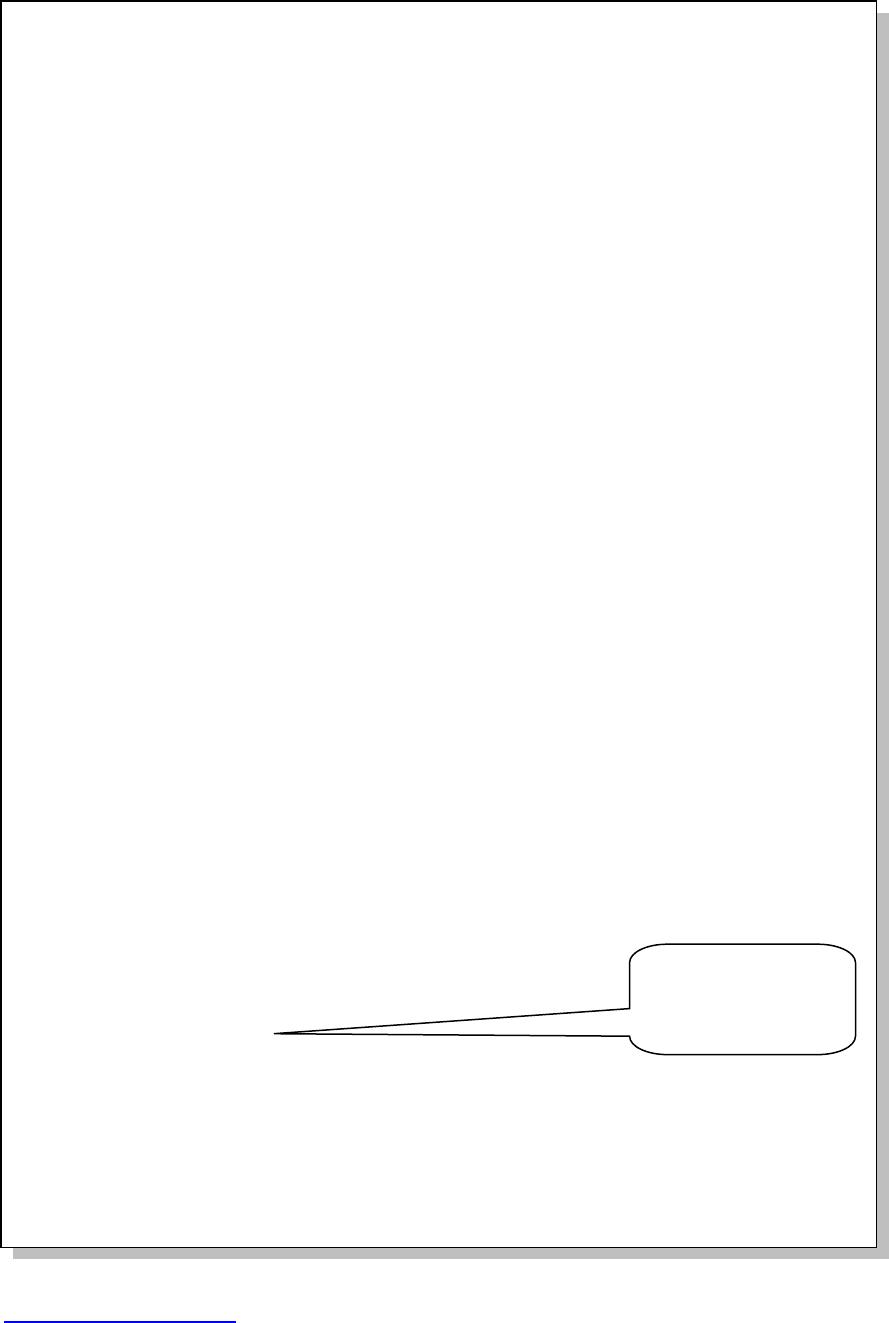
Career Planner Johns Hopkins Bloomberg School of Public Health
http://www.jhsph.edu/careers JHSPH.Careers@jhu.edu
8
M. Bloomberg, pg. 2
Program Intern Jan. – May 2020
Bill & Melinda Gates Foundation
Recipient of the Gates Foundation award for Population and Reproductive Health
• Conducted research examining risk factors for malaria in pregnant women in rural villages
• Developed the protocol and questionnaire for study
• Managed, collected and analyzed data which will assist in future research at the project site
Monitoring and Evaluation Intern Sept. – Dec. 2019
PATH Malaria Vaccine Initiative (MVI)
• Created a database for a unified country evaluation system of advocacy activities
• Conducted malaria-related research for the advocacy project
• Wrote and edited fact sheets and success stories
• Ensured the quality of data submitted by community health centers via on-site visits
• Supervised implementation of National Malaria Program treatment and prevention policies
• Coordinated with local authorities for sites of new advocacy field research
Senior Research Assistant Summer 2019
Widmore College
• Performed a comprehensive genetic screen to discover new genes involved in insect olfaction leading
to the discovery of a probable new class of odorant receptors
• Assisted with qualitative and quantitative analysis, quality assurance and quality control
• Trained and supervised two laboratory technicians and two research assistants
Laboratory Assistant Winter 2019
Crane Chemical Senses Center
• Performed general laboratory tasks including preparing slides for health related
studies of the effects of malaria outbreak and direct patient studies
Child Life Volunteer Fall 2018
Children’s Hospital of Chicago
• Consoled and entertained hospitalized children and infants to provide relief and comfort
during traumatic and stressful times in their lives
PUBLICATIONS
Boston, R., M. Bloomberg, et al. (2018).” Physical Functioning in Women with HIV”; Public Health
Magazine; November 2018, New York, NY.
PROFESSIONAL DEVELOPMENT
Language Skills: French (Fluent); Arabic (Fluent); Swahili (Basic)
Computer Skills: Stata (Biostatistics computing software); Microsoft Office products (Word, Excel, and
PowerPoint); Filemaker Pro; ArcGIS
Memberships: Global Health Council (2021-Present); Officer, JB Grant Society (2021-Present)
Tip: Professional development
is “catch-all” for anything else
you want on the resume. Make
sure to include levels of
proficiency in skills sections.
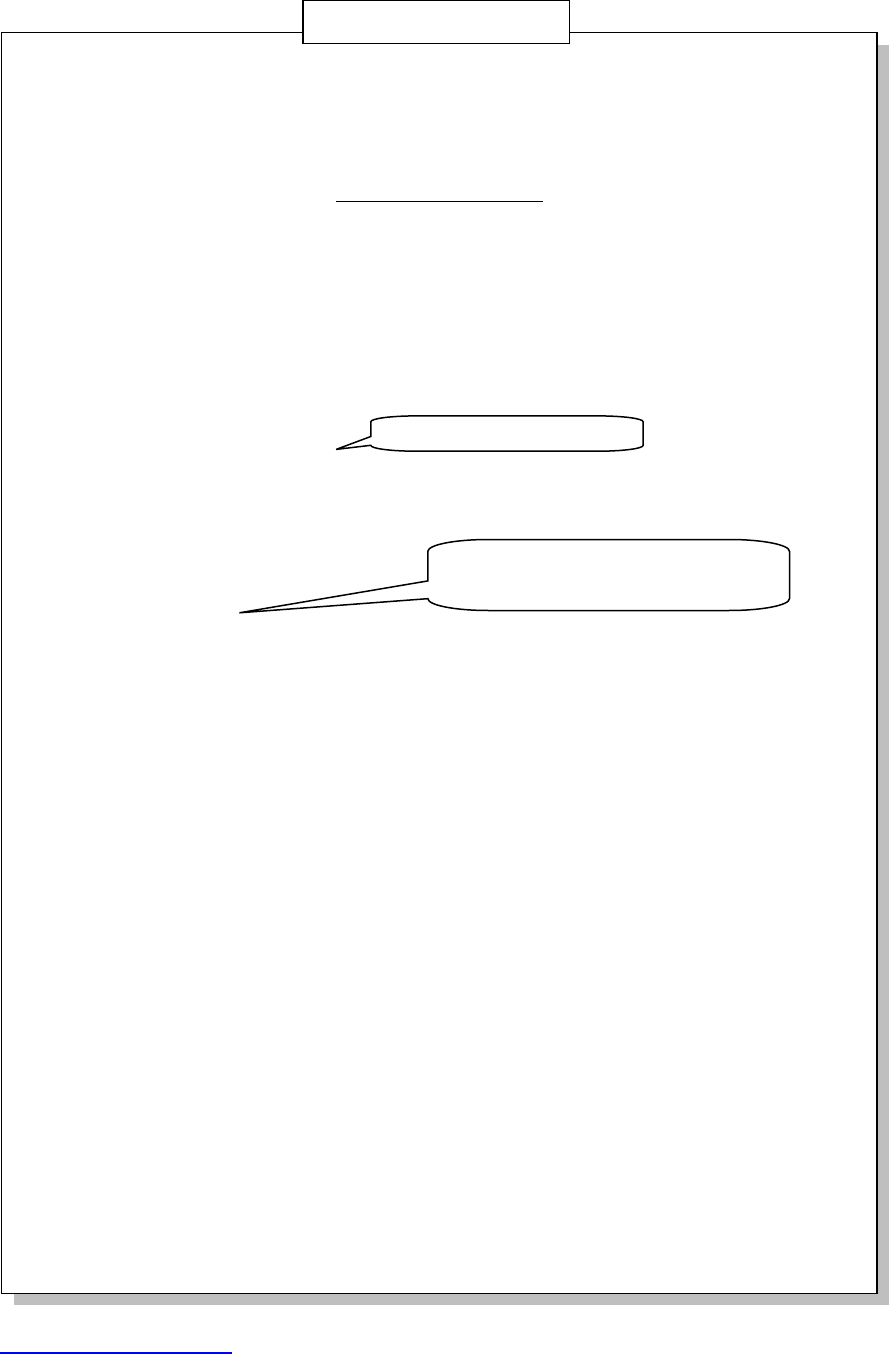
Career Planner Johns Hopkins Bloomberg School of Public Health
http://www.jhsph.edu/careers JHSPH.Careers@jhu.edu
9
Paige Health
600 N. Wolfe Street
Baltimore, MD 21205
410-955-3034 • [email protected]
linkedin.com/in/paigehealth
PROFILE
Master of Science student studying epidemiology with additional training in humanitarian assistance.
Public health researcher with strong skill sets on program management and implementation of
resources. Fluent in French and conversational in German. Extensive experience with Stata and SAS.
EDUCATION
Master of Science (ScM) in Epidemiology Expected May 2022
Johns Hopkins Bloomberg School of Public Health, Baltimore, MD
Certificate in Humanitarian Assistance Expected May 2022
Johns Hopkins Bloomberg School of Public Health, Baltimore, MD
Bachelor of Arts (BA) in Anthropology May 2019
State University, Eastham, MA
PUBLIC HEALTH TRAINING
Johns Hopkins Bloomberg School of Public Health, Baltimore, MD Aug. 2021 – Present
Principles of Epidemiology (Fall 2021)
• Designed studies using basic epidemiologic methods
• Identified the place of epidemiology in preventive medicine and disease investigation
• Reviewed papers and assess the validity of their design and their inferences
Social Epidemiology (Fall 2021)
• Identified and described four distinct core areas of research
• Applied concepts, theories, and methods from the field of social epidemiology to a research problem
INTERNATIONAL EXPERIENCE
• Assisted in the implementation of child-focused mobile medical units to serve 2000+ vulnerable Iraqi
refugee children, including the training of school officials, development of operational plans, provision
of logistical support, and development and implementation of a monitoring and evaluation system
• Developed and submitted funding and project proposals for both the Jordanian government and
international funding agencies such as UNICEF, United Nations Development Programme (UNDP), and
the US Bureau of Population, Refugees and Migration
• Identified, compiled and mapped the psychosocial and mental health services available to refugees
and vulnerable Jordanians in the Amman area
• Supervised a health assessment study of Iraqi refugees including training interviewers, sample
supervision, data management and quality control and analysis of study findings
• Conducted research on the psycho-social and behavioral risk factors associated with poor adherence
to highly active anti-retroviral therapy (HAART) for AIDS in Botswana
• Assisted in providing medical care, primarily malaria, pre-natal and wound care, for the displaced
Batwa people in rural southwest Uganda
• Analyzed barriers in villagers rural sub-Saharan Africa face in accessing adequate health care
Functional Style Resume
Tip: Used to demonstrate “skills” learned in the
classroom. More descriptive than just listing relevant
coursework under degree.
Tip: Add certificates on separate line.
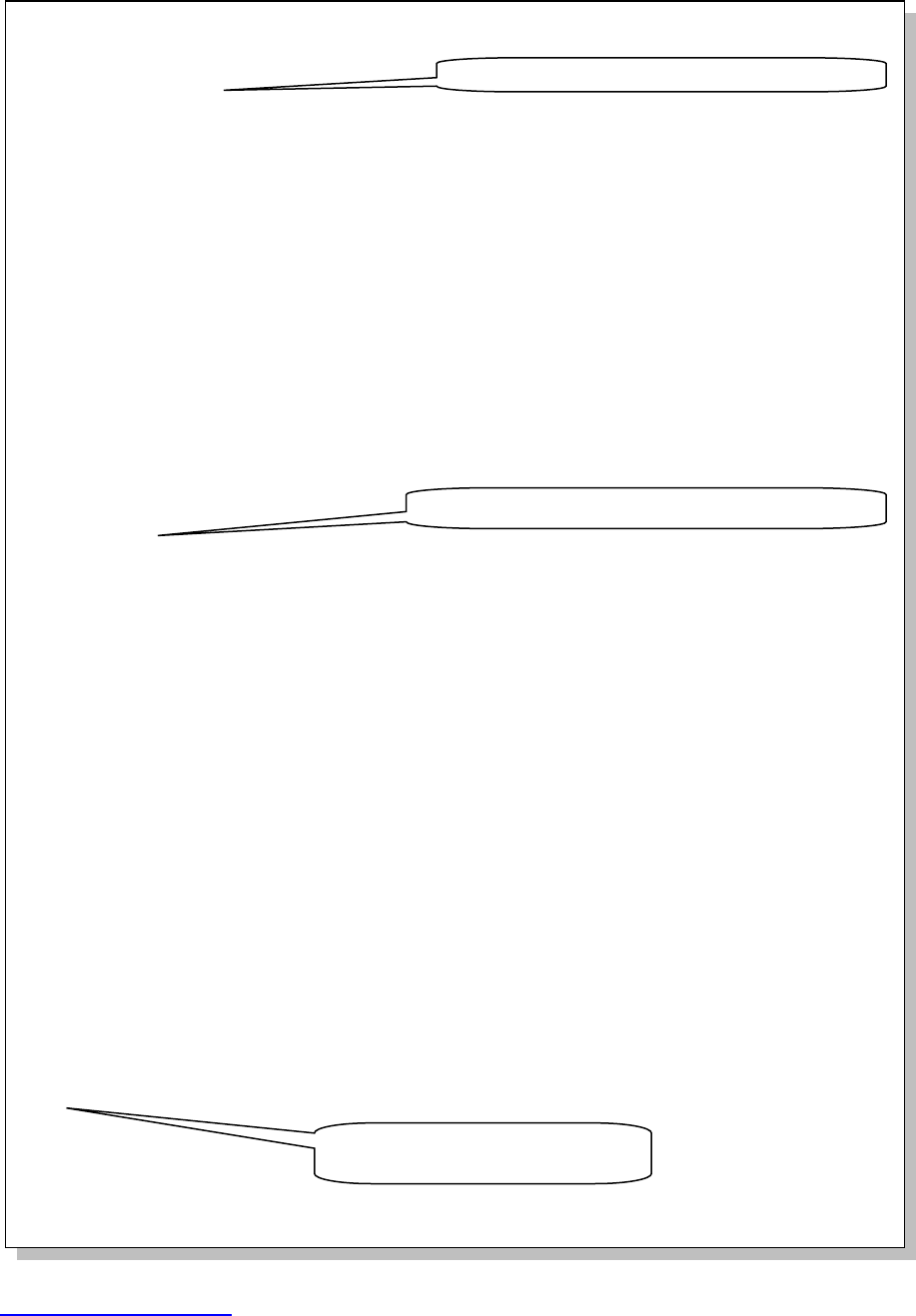
Career Planner Johns Hopkins Bloomberg School of Public Health
http://www.jhsph.edu/careers JHSPH.Careers@jhu.edu
10
P. Health, pg. 2
RESEARCH EXPERIENCE
• Identified and enrolled eligible patients and their families at primary care clinic serving primarily
low-income families in inner-city Baltimore for a study on how the relationships between health
providers and parents of infants affect how well parenting advice is followed
• Administered initial and follow-up surveys to eligible patients in Baltimore
• Monitored patient appointments and clinic attendance
• Compiled and analyzed data on global trade by researching and evaluating sources for two journal
articles on double standards in international agricultural trade and the impact of trade
liberalization on agricultural productivity in sub-Saharan Africa
• Conducted extensive reviews of the literature on epidemiology and disease surveillance for USAID
funded research project
• Assisted with data entry and analysis on study related to establishing new intervention and safety
planning program
• Engaged in research site recruitment and participant retention by creating new recruitment
materials and outreaching to local health clinics, and hospitals
• Trained in conducting qualitative interviews for research studies by faculty
WORK HISTORY
Research Assistant, Harriet Lane Pediatric Clinic, Baltimore, MD (Sept. 2021-Present)
Program Support Officer, International Medical Corps, Amman, Jordan (July 2020-Aug. 2021)
J. William Fulbright Fellow, Gaborone, Botswana (Aug. 2019-July 2020)
Research Assistant, Infectious Disease Care Center, Gaborone, Botswana (Aug. 2018-July 2019)
Medical Support Staff, Bwindi Community Health Centre Kanungu District, Uganda (Summer 2018)
Volunteer, SHAWCO Mobile Health Clinics Cape Town, South Africa (Feb.-June 2018)
Volunteer, Treatment Action Campaign Cape Town, South Africa (Feb.-June 2018)
Research Assistant, Boston University, Boston, MA (Aug. 2017-May 2018)
PROFESSIONAL DEVELOPMENT
Language Skills: Fluent English, French, Conversational German
Computer Skills: Proficient in Word, Excel, Access, PowerPoint, Stata, SAS, EpiData, research search
engines including LexisNexis and PubMed
Training: Medication Adherence Training and AIDS Care Fundamentals Workshops, Botswana,
KITSO AIDS Training Program AIDS Initiative Partnership (April 2021)
Tip: Be sure to include work history in reverse chronological order.
Tip: Different sections highlight cumulative experience over time.
Tip: Can also include certifications, volunteer
activities, conferences attended, etc.
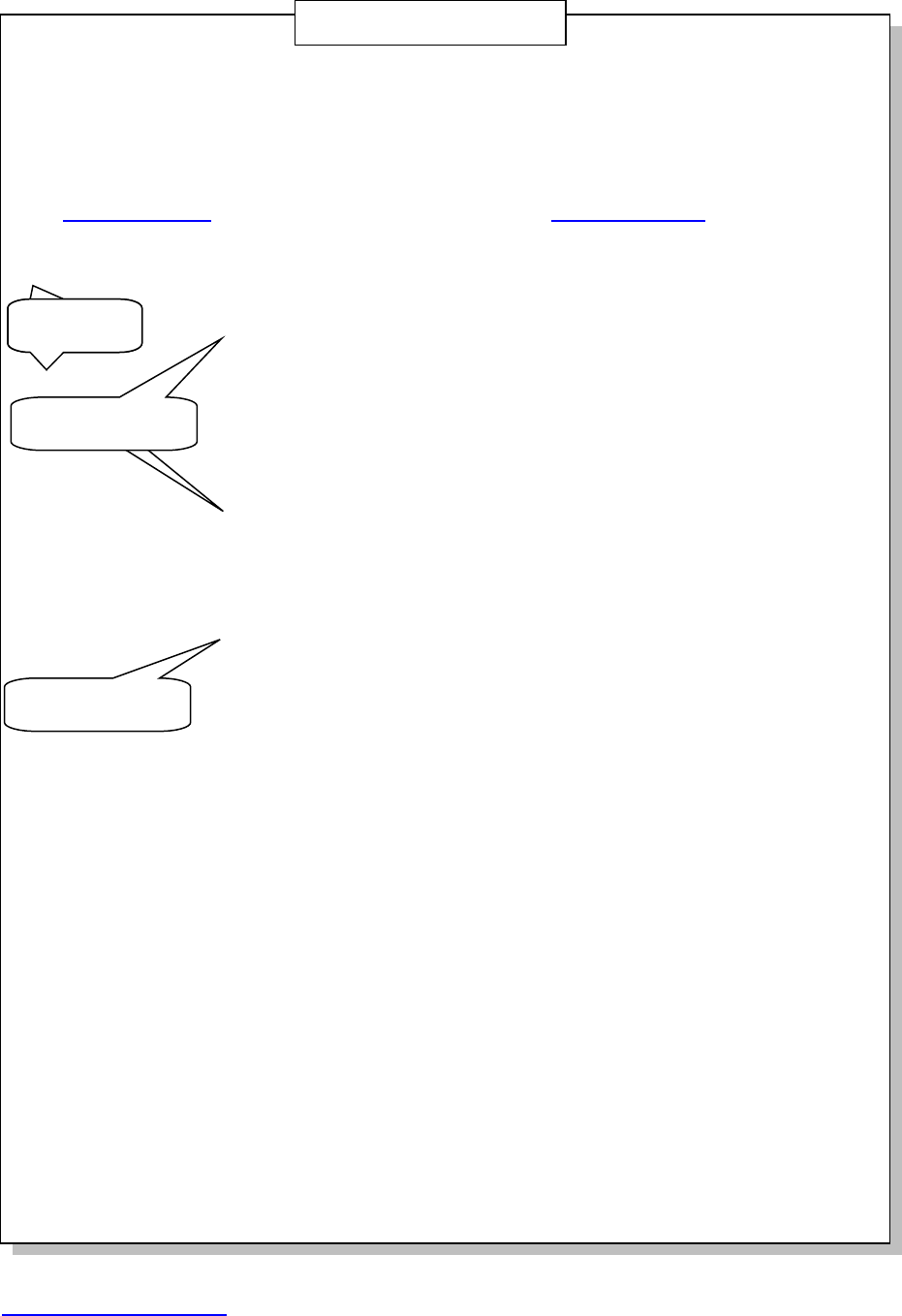
Career Planner Johns Hopkins Bloomberg School of Public Health
http://www.jhsph.edu/careers JHSPH.Careers@jhu.edu
11
Matthew Bloomberg, MSPH
Home Address: Office Address:
978 Lombard Street Johns Hopkins Bloomberg School of Public Health
Baltimore, MD 21202 615 N. Wolfe St, W2300
Cell: (555) 555-5551 Baltimore, MD 21205
EDUCATION
Expected Dec. 2023 Doctor of Philosophy (Ph.D.)
Department of International Health, Global Disease Epidemiology and Control
Johns Hopkins Bloomberg School of Public Health (JHSPH), Baltimore, MD
Dissertation: Indirect Benefits of Rotavirus Vaccination in Bangladesh (Dr. John Hopkins)
May 2018 Master of Science in Public Health (MSPH)
Department of International Health, Global Disease Epidemiology and Control
JHSPH, Baltimore, MD
May 2016 Bachelor of Arts (BA)
Biology, Hartwick College, Oneonta, NY
Senior Thesis: Impact of Agricultural and Wastewater Treatment Facility Runoff on the Incidence of
Antibiotic Resistant Bacteria in Streams (Dr. Paige Health)
RESEARCH EXPERIENCE
Aug. 2020 – Present Research Assistant, Center for Immunization Research, Department of International
Health, Johns Hopkins Bloomberg School of Public Health, Baltimore, MD
Principal Investigator (PI): Dr. John Hopkins
• Lead study coordination, protocol development, data management and analysis for
Phase I and Phase II studies of new enteric vaccines
• Perform extensive secondary data analysis which has resulted in three manuscripts
including a first-author publication currently under review
• Develop and optimize numerous microbiology and immunology techniques
• Played key role in writing small grants resulting in funding of $250,000 (Dr. John Hopkins)
Nov. 2017 – May 2018 PHASE Intern, Maryland Department of Health, Epidemiology and
Disease Control Program, Baltimore, MD
• Conducted an assessment of Hepatitis C Virus screening and treatment practices of
providers serving individuals with limited resources (Dr. William Penn)
July 2015 – Aug. 2016 Research Technician, Partners AIDS Research Center, Massachusetts General Hospital,
Harvard Medical School, Boston, MA
• Performed molecular and immunology assays for studies on Hepatitis C virus infection,
including mammalian tissue culture, DNA extraction, elispot, lymphoproliferative assays,
chromium release assays, intracellular cytokine staining, tetramer/pentamer staining,
and multicolor flow cytometry
• Established innovative methodologies for long term culturing of murine regulatory T cells
(Dr. Matt George & Dr. Lee Michael)
July 2014 – June 2015 Lab Manager, HCV Group, Partners AIDS Research Center, Massachusetts General
Hospital, Harvard Medical School, Boston, MA
• Oversaw training and supervision of new technicians, management of BL2+ tissue culture
room, and ordering of reagents and supplies
• Utilized transgenic mouse model of
Hepatitis C infection to investigate regulatory T cell
function (Dr. Lee Michael)
Curriculum Vitae
Tip: Dates on the
left margin
Tip: Dates on the
left margin
Tip: Include
dissertation/thesis titles.
Tip: Add names of faculty
you work with.

Career Planner Johns Hopkins Bloomberg School of Public Health
http://www.jhsph.edu/careers JHSPH.Careers@jhu.edu
12
M. Bloomberg, pg. 2
TEACHING EXPERIENCE
2018 – 2021 Teaching Assistant, Department of International Health
Johns Hopkins Bloomberg School of Public Health, Baltimore, MD
Course title: Clinical Vaccine Trials and Good Clinical Practice:
• Developed course materials in conjunction with instructors, communicated with
students, maintained course website, and graded assignments; 5 terms (Samantha
Brown & Julie Smith)
Course title: Clinical and Epidemiologic Aspects of Tropical Diseases
• Scheduled guest lecturers, communicated with students, maintained course website, and
graded exams and assignments; 3 terms (Dr. Jim Miller & Dr. Cooper Sims)
Course title: Introduction to International Health
• Facilitated discussion group sessions, held office hours, and graded assignments; 1 term.
(Dr. Pat Sajak)
Jan. 2015 – June 2016 Tutor, Study Smart, Boston, MA
• Conducted private, in-home tutoring for SSAT/ISEE, PSAT, and SAT prep and
academic subjects
SCHOLARSHIPS
Sep. 2018 – Aug. 2020 Clinical Trials Training Program in Vision Research (Full Tuition), National Eye Institute
Training Grant Number EY 07127, National Institutes of Health
May 2018 Clements-Mann Fellowship, Johns Hopkins Bloomberg School of Public Health
PROFESSIONAL TRAINING
May 2018 Certificate in Vaccine Science and Policy, Department of International Health, Johns
Hopkins Bloomberg School of Public Health, Baltimore, MD
December 2017 Clinical Vaccine Trials and Good Clinical Practice (GCP), Johns Hopkins Bloomberg
School of Public Health, Center for Immunization Research, Baltimore, MD
PROFESSIONAL MEMBERSHIPS
2020 – Present American Society for Microbiology
2018 – Present Global Health Council
PUBLICATIONS
Bloomberg M., Namaz, L., Kite, R., Elliott, F., Cadwell, M. [2020], Malnutrition levels in
children in developing South American nations, Journal of Vaccine Science.
Bloomberg M., Rudy, M., James, L., Anthony, C., Waterson, S., Lewis, M. [2019],
Comparative evaluation of the antibody in amyotrophic lateral sclerosis (ALS) and enzyme-
linked immunospot (ELISPOT) assays for measuring mucosal immune responses to Shigella
antigens, Journal of Vaccine Science 23:6214–6987.
PRESENTATIONS
Namaz, L., Kite, R., Elliott, F., Cadwell, M., Bloomberg M. Volunteers receiving live CETC
vaccine have reduced severity of illness following H10407 challenge. Presented at the 8
th
International Conference on Vaccines for Enteric Diseases, Cannes, France, 2020.
Rudy, M., Bloomberg M., Fatima, P., Honda, V., Taeroe V., Deering, R., Nuracum, L., Burg, P,
Walker, T., Lundgren D., Swenarole, Q. Immune Responses in Volunteers Challenged with
Enterotoxigenic E. coli. Presented at the 7
th
International Conference on Vaccines for
Enteric Diseases, Malaga, Spain, 2019.

Career Planner Johns Hopkins Bloomberg School of Public Health
http://www.jhsph.edu/careers JHSPH.Careers@jhu.edu
13
STRONG ACTION WORDS
accomplished cut indoctrinated purchased
achieved decreased influenced recommended
acted delegated informed reconciled
adapted demonstrated initiated recorded
addressed developed innovated recruited
administered devised inspected reduced
advanced diagnosed installed referred
advised directed instigated regulated
allocated dispatched instituted rehabilitated
analyzed distinguished instructed remodeled
approved diversified integrated repaired
arranged drafted interpreted represented
assembled edited interviewed researched
assigned educated introduced restored
assisted eliminated invented restructured
attained enabled launched retrieved
audited encouraged lectured revitalized
authored engineered led saved
automated enlisted maintained scheduled
balanced established managed schooled
budgeted evaluated marketed screened
built examined mediated set
calculated executed moderated shaped
catalogued expanded monitored solidified
chaired expedited motivated solved
classified explained negotiated specified
coached extracted operated stimulated
collected fabricated organized streamlined
compiled facilitated originated strengthened
completed familiarized overhauled summarized
composed fashioned oversaw supervised
computed focused performed surveyed
conceptualized forecast persuaded systemized
conducted formulated planned tabulated
consolidated founded prepared taught
contained generated presented trained
contributed guided prioritized translated
controlled headed up processed traveled
coordinated identified programmed trimmed
corresponded illustrated projected upgraded
counseled implemented promoted validated
created improved provided worked
critiqued increased published wrote

Career Planner Johns Hopkins Bloomberg School of Public Health
http://www.jhsph.edu/careers JHSPH.Careers@jhu.edu
14
1876 W. Terrace St., Apt #3
Baltimore, MD 21218
January 12, 2022
Shelia Westwood
Human Resource Manager
Global Health International
1 Westwood Drive
Arlington, VA 22210
Dear Ms. Westwood,
I was excited to see that Global Health International (GHI) is seeking candidates for the Global Health
Specialist position. Dr. Barbara Watts, Senior Health Specialist at GHI made me aware of the position and
recommended that I submit my application. I am confident that my previous experience as well as my
skills in behavior change communication and program development would prove useful in the position.
In May 2022, I will complete my Master of Public Health (MPH) degree with an emphasis on child and
adolescent health. Prior to studying for my degree, I worked with a non-profit organization that focused
on providing Hispanic health outreach services to the local community. In this position, I administer HIV
testing, counsel participants on health issues, and manage multiple grants. In addition, I have worked in
Bhutan as a team coordinator and with the Peace Corps designing and facilitating health trainings in
Paraguay. I also have experience in research in academic settings.
I believe that my skills and work experience in global health would be a good match for the Global Health
Specialist position at Global Health International. I have enclosed my resume and look forward to
discussing my qualifications with you in the near future. I will plan to follow up two weeks after the
position closing date. In the meantime, I can be reached at (410) 955-3034 or via email at
jhopkins@jhu.edu. Thank you for your time and consideration.
Sincerely,
John Hopkins
John Hopkins
Enc: Resume
COVER LETTERS
The importance of a strong, well-written cover letter cannot be overstated. A cover letter is used to introduce yourself to
a potential employer and provide insight into your resume. It should highlight key skills and abilities relevant to the
qualifications in which the employer is interested rather than a duplication of your entire resume. A cover letter should be
concise and present a clear idea of what you can offer the employer. It demonstrates your ability to communicate in
writing and organize your thoughts in a cohesive manner, both of which are pertinent to most positions. It is your first
writing sample to a new employer...so make your first impression a good one!
Cover Letter Structure
• One page (two pages are acceptable for academic positions)
• 3-5 paragraphs; No more than five sentences per paragraph
• Use key words, action words, and adjectives describing your skills
• Be sure each cover letter is specifically tailored to the position you are applying for
• Mention contacts and referrals (if applicable)
• Try to address to an individual; only use “Dear Hiring Manager” or “Dear Human Resources” if needed
Getting Started
• Your return address at the top of the page
• The date will appear two lines below the return address (make sure to write out the date; don’t abbreviate)
• Include company contact information (contact name and title, address, and phone number) two lines beneath the date
• The salutation will fall two lines below the addressee information
• Begin with “Dear Mr.” or “Dear Ms.”, followed by the person’s last name
Introduction Paragraph
The introduction paragraph should:
• State your specific interest (include the job title you are seeking)
• Use strong statements that will motivate the employer to read further
• Use a reference to previous
discussions or contact - give specific
dates to help the reader remember
• Establish your knowledge of the
employer
• Be concise (2-4 sentences)
• Catch the reader’s attention
Body of the Letter
The body of the letter should:
• Be one to three paragraphs
• Be no longer than two to five
sentences per paragraph
• Be your “SALES PITCH”
• Be written using short but
complete sentences
• Show how your background matches
the employer’s criteria; emphasize
your functional skills
• Use a specific example of your skills
(if applicable)
Closing Paragraph
The closing paragraph should:
• State that your resume is
included for review
• Name the action to be taken –
(offer specific date of action)
• Thank the recipient

Career Planner Johns Hopkins Bloomberg School of Public Health
http://www.jhsph.edu/careers JHSPH.Careers@jhu.edu
15
Sample Cover Letter for an Academic Position
January 12, 2022
Dr. James Gerontology
Department of Epidemiology
Emory University School of Public Health
Atlanta, GA 30334
Dear Dr. Gerontology,
I am writing in response to your notice in the November issue of the Journal of Epidemiology regarding the
position of Assistant Professor of Epidemiology in your department. I am currently a doctoral candidate at the
Johns Hopkins Bloomberg School of Public Health and expect to complete all requirements for the degree by
March 2022.
My dissertation deals with the evaluation of access to health care in the metropolitan Philadelphia area. Through
my association with the National Association of Health Services Executives (NAHSE), I interviewed 80 mothers
participating in various parent education programs. From the qualitative data I gathered, as well as from
quantitative data collected by NAHSE, I am evaluating the efficacy of the programs. In addition, the qualitative
data have led me to challenge cultural assumptions about health care practices and to consider issues
surrounding the mainstream definitions of seeking medical treatment. Since the populations I have studied are
largely poor minorities, I am examining the role of social norms and the family experience of these parents.
As you can see from my CV, I have been most fortunate in my graduate student career to have had ample
opportunity both to teach and conduct research. As a teaching assistant and as an instructor of my own courses,
I have been afforded a great deal of experience with a wide range of courses, including Qualitative Methods,
Outcomes Research and Environmental Induced Illness; a list of my teaching interests can be found on my CV.
The anonymous reviews by my students have been consistently laudatory, citing my knowledge, teaching style,
and enthusiasm as highlights of the courses. I am committed to working with students and have maintained
professional relationships with many of them years beyond the classroom.
My research interests are as varied as my teaching. I have engaged in organizational research for the past three
years with Dr. Chad Everett at the University of Michigan, School of Public Health. One article stemming from
this work, “Comparing Community Health Centers, Hospital Outpatient Departments, and Physician Offices,” has
recently been published in the Journal of the American Medical Association (JAMA). In addition, I have worked
extensively with Professor Jane Arbor, formerly of Bryn Mawr College and currently of the University of North
Carolina – Chapel Hill School of Public Health. This work has included my master’s project on quality health
care for the medically under-served in North Carolina. Recently, I independently conducted research on female
crack addicts in rehabilitative programs, a project which I eventually hope to address in a series of short papers.
I have been an active member of the academic and social communities at both Schools of Public Health at Johns
Hopkins and the University of North Carolina. I have served on numerous committees and have been a vigorous
and enthusiastic participant in university life. My involvement spans groups as serious as the University
Academic Planning and Budget Committee, the Provost’s committee to which only two graduate students are
appointed each year, and as whimsical as the annual talent show, which I originated and continue to run each
year.
I believe that I would be an asset to your department and university and would welcome the opportunity to
discuss the assistant professorship with you further. I look forward to hearing from you.
Sincerely,
T. L. Candidate
T. L. Candidate
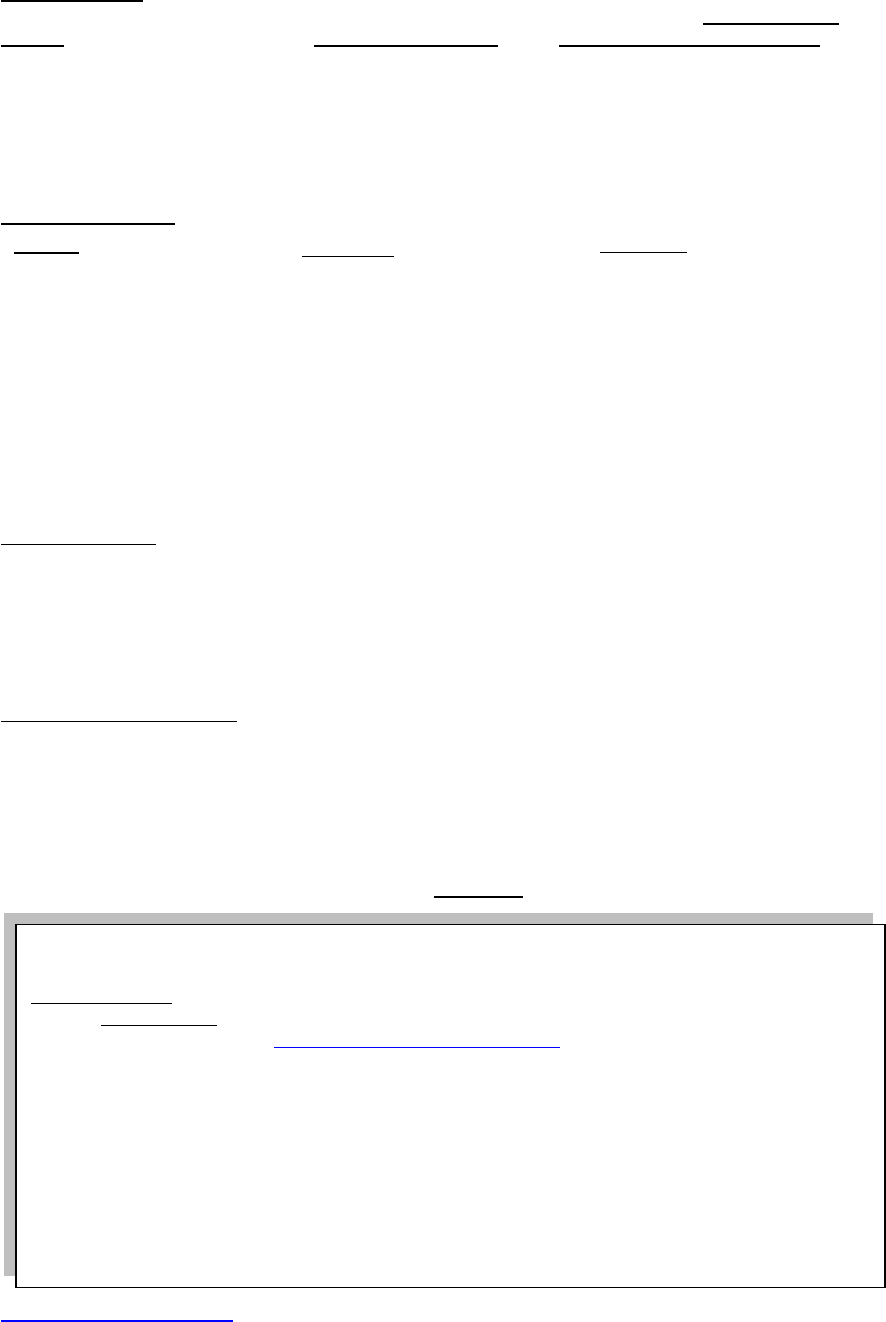
Career Planner Johns Hopkins Bloomberg School of Public Health
http://www.jhsph.edu/careers JHSPH.Careers@jhu.edu
16
Personal
• Immediate family
• Relatives, near and far
• Close friends & casual
acquaintances
• Distant friends, old friends, ex-
roommates
• People in your neighborhood –
your doctor, dentist, insurance
agent, broker, personal banker,
mechanic, spiritual leader, or
counselor
NETWORKING
Networking can mean different things for different people. But most importantly, networking is simply talking and
listening to people while at the same time developing relationships around common interests and experiences. Or put
more simply, networking is how you met your friends, selected your classes, chose your concentration, or decided where
to go for lunch/dinner. Why network? Simply because networking is the most effective strategy for getting a job. It is
important to know that only 15% of available jobs are advertised through online resources, newspapers, and trade
journals. That means that the other 85% are found by being in the right place at the right time or through word of mouth.
So, the saying, “It’s not what you know, but who you know!” takes on new meaning. The theory behind networking is
relatively simple, but to get results, it takes time, energy, and focus.
TYPES OF NETWORKS
Basics of networking
Networking is about building relationships and connections in a purposeful, organized way. Networking is not quickly
acquiring names of people just to get a job. Networking is about creating advocates for yourself that can pay attention to
opportunities on your behalf. Or they can refer you to individuals that might help in your job search and connect you to job
opportunities either before they are posted, or ones that an organization is looking to fill from a known source and never
formally posts. Networking is much more about “planting the seed” with others so they can help you out not in the short
term, but in the long term.
Why is networking so stressful?
The “meeting” people part of networking can be intimidating – it takes us out of our comfort zone! Many of us are not
naturally extroverted people who like to “work a room.” How do you overcome this anxiety? Start by knowing a little bit
about yourself. Try to answer these questions: 1. What is my career trajectory? 2. Where do I see myself headed?
3. Where did I come from? Next, begin identifying people who might know something about the type of job you want.
Then, establish priorities. Where will you start? Professional directories, colleagues, business correspondents during the
past year are a possibility. Don't confine your network to contacts in your profession. The key to successful networking lies
in understanding that you aren't directly asking for someone to help you find a job. Instead, you’re looking to create a low-
key, low-intensity, low-stakes, low-demand and low-risk to both parties that does not have many strings attached.
Professional
• Colleagues in your organization:
superiors, subordinates, peers,
secretaries, support staff
• Colleagues in other
organizations
• Competitors and professional
acquaintances
• Board of Directors, board of
trustees and advisory boards
• Professors, classmates, and
alumni
Community
• Community or volunteer
organizations (Boy Scouts,
Girl Scouts, United Way)
• Professional, cultural, and
civic organizations
• Philanthropic organizations
and fundraising groups
• Public-private organizations
• Business development
organizations
• Chambers of Commerce
OneHop
What is OneHop? - One-Hop is an easy-to-use platform that will allow you to build connections with JHU alumni.
OneHop Mentoring builds purposeful connections between current students and selected alumni
mentors. OneHop Alumni provides a community for alumni to network with one another, and to offer guidance to
fellow alumni and students. Visit https://onehop.jhu.edu/page/students for more details.
What happens when I sign-up? - Alumni recommendations will be made based upon your profile information. You
can also browse our community of professionals by industry, major, location and more. Once you reach out to
connect, you will be offered different options to schedule and conduct a meeting. The method you use to hold
your meeting (virtually or in-person) will be up to you and the alum to coordinate.
How can I get the most out of this platform? - Be active! Ask questions and make new connections. Don’t be
afraid to reach out to someone. People are waiting for you to connect with them. Everyone in our community is
here to support you. Also check out the Discussion board to see the types of information that is being shared by
students and alumni.
How do I get started? - 1. Click “Join Our Community!” 2. Select "Log-in with JHEDID button" 3. Type in your
JHEDID and password 4. Complete your profile 5. Start exploring the networking community!
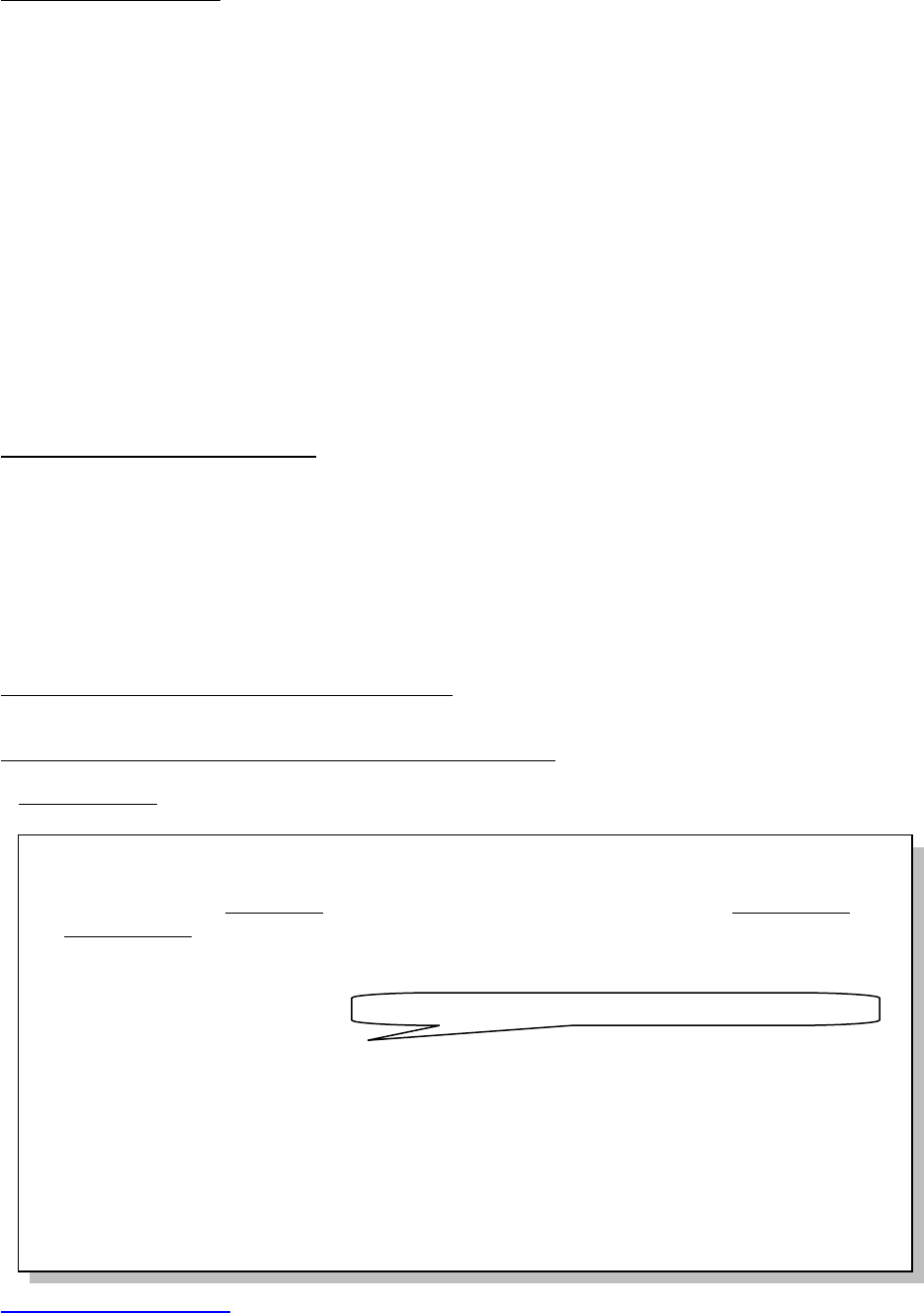
Career Planner Johns Hopkins Bloomberg School of Public Health
http://www.jhsph.edu/careers JHSPH.Careers@jhu.edu
17
INFORMATIONAL INTERVIEWS
Informational interviews are one of the easiest and most effective ways to meet people in a professional field in which you
are interested. Tapping into the knowledge of others will provide you with invaluable information to help you as you make
career decisions. Informational interviews are meetings you arrange with a person who currently does the job you think
you might want, or who has specific knowledge of an occupation or industry of interest.
GOALS OF INFORMATIONAL INTERVIEWING
1. Create advocates – at the conclusion of a good informational interview, you will have established a new
professional relationship with your contact. This contact will become an “advocate” for you-keeping their eyes
and ears open for any potential opportunities.
2. Influential introduction – if the contact you meet does not have the means to help you out directly, perhaps
he/she can provide you with an “influential introduction” to another colleague that might be better suited to
you. Having someone else vouch for you goes a long way in helping to meet new contacts.
3. Personalizes your job search – your job search is about you, the person. People want to hire people that they
think they know. Get out from behind your computer, go out and meet people. The more you do it, the better
you will get at it and the easier networking will become.
HOW TO GET STARTED WITH INFORMATIONAL INTERVIEWING
Email is the preferred method for starting any type of informational interviewing. It is less intrusive than a phone call and
the recipient can decide to respond at a time that works best for them. Be sure to mention how you got his or her name.
You can customize this email template to begin your informational interview.
1. Introductory email
What to remember:
1. You are not asking for a job
2. Think like a reporter gathering information and
asking good, open-ended questions
3. Planting the “seed” for future help
4. Tap into the fact that people generally like to talk
about themselves and usually are willing to help
5. Initiate contact via email first
6. Confirm date, time, and offer to call or meet with
them face-to-face
7. Timely follow-up is the key to maintaining and
establishing the connection
What questions to ask:
1. How did you begin your career? OR What
was your career trajectory?
2. What ways do you use your JHSPH training
in your current position? OR How did your
JHSPH training prepare you for this role?
3. What advice would you give for anyone
transitioning from school to working?
4. Can you describe your typical day to me?
5. What is it like to work at your organization?
6. Can you suggest anyone else I could contact
for additional information?
7. What challenges are facing this industry
today? OR What changes do you see
occurring in the next 10 years?
Subject line: Questions from a current JHSPH student
Email Text: My name is __________, and I came across your information in a search of ____________ in
the _____________. I’m curious to learn more about your career path and about your work at (name of
organization). I’m emailing you today to see if it would be possible to find a convenient time in your
schedule for an informational interview. I’d only ask for approximately 30 minutes of your time as I’m sure
your schedule is quite busy.
If necessary, I can send you more information about myself and what I’m currently doing at the Bloomberg
School of Public Health. I’m hoping you’ll be able to accommodate this request.
Thanks in advance for your consideration and I look forward to hearing from you soon!
Sincerely,
John Hopkins
MPH Candidate, May 2022
Tip: Do not attach anything but offer to send more information like a resume /CV.
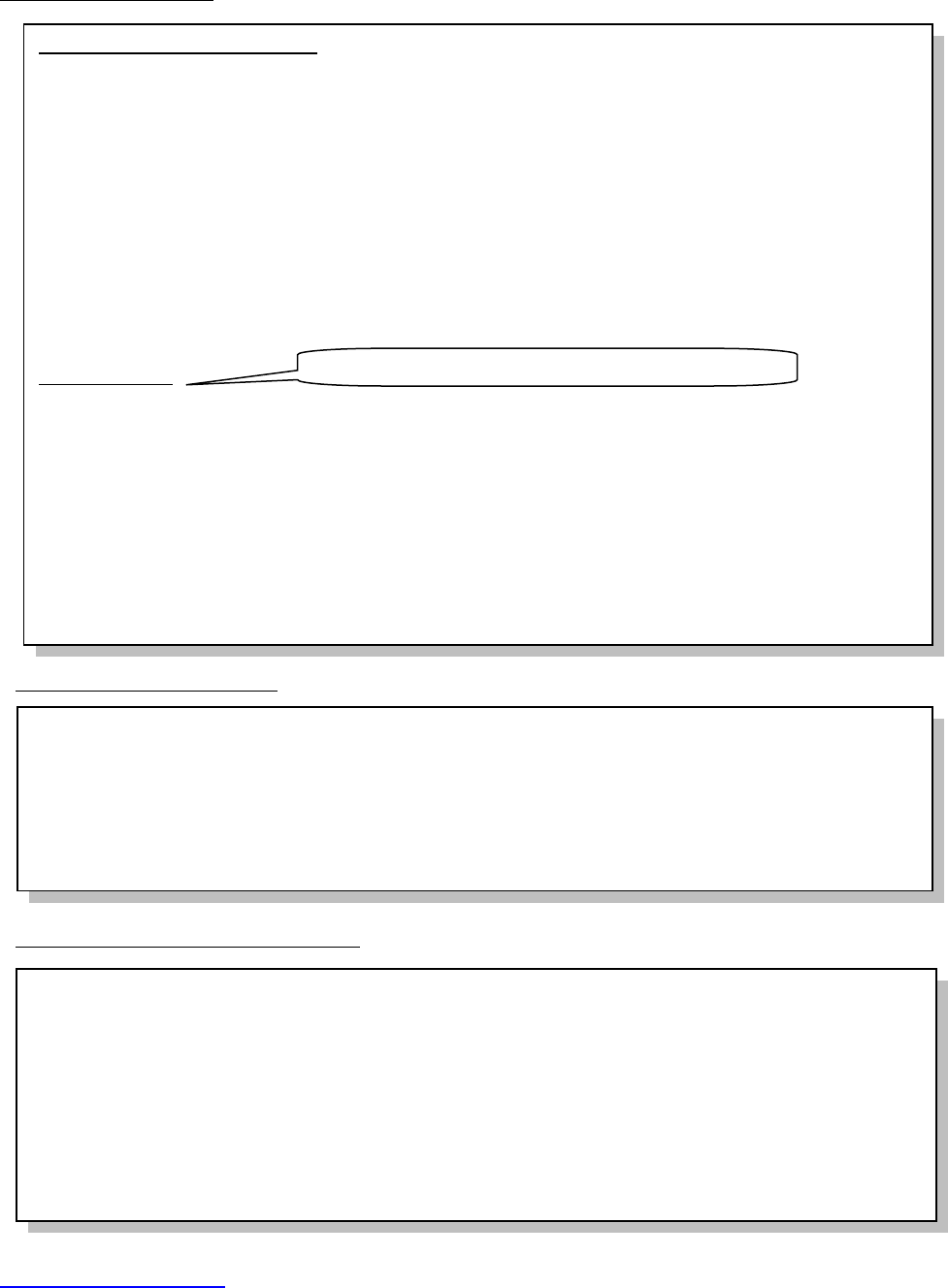
Career Planner Johns Hopkins Bloomberg School of Public Health
http://www.jhsph.edu/careers JHSPH.Careers@jhu.edu
18
2. Follow-up email exchanges
3. Confirmation email - Offering to call
4. Confirmation email - Sharing Zoom information
Possible email reply from recipient:
John-
Thanks for your email. I would be happy to speak with you about my career path and what is like to work with
my organization. I really love it here!!!
Please send me a copy of your resume/CV so I can review it before we talk. Let's plan to have a conversation
for 20-30 minutes via phone in the next couple of weeks. My flexible days are Wednesday, Thursday, and
some Fridays. Have a good weekend!
Mike Health
ABC International
Your email reply:
Mike-
Thanks so much for getting back to me. Attached you will find my resume. Next Wednesday, November 10
th
is
a good date for me. Would a phone call or a Zoom meeting at 1 pm EST work for you?
Look forward to speaking with you soon.
John Hopkins
MPH Candidate, May 2022
Mike-
We are confirmed for Wednesday November 10
th
at 1 pm EST to speak over the phone. I will plan to call you at
the number in your contact information. Should you need any additional information prior to our meeting,
please don’t hesitate to contact me.
John Hopkins
MPH Candidate, May 2022
Tip: Plan to write back in 24-48 hours if possible. Maintain momentum.
Mike-
We are confirmed for Wednesday November 10
th
at 1 pm EST to meet over Zoom. Here is a Zoom information.
John Hopkins is inviting you to a scheduled Zoom meeting.
https://jh.zoom.us/j/93360971458?pwd=WjhUbUxBdGtPK2tJWStpWno3djY0Zz09
Meeting ID: 933 6097 1458
Passcode: 123456
Should you need any additional information prior to our meeting, please don’t hesitate to contact me.
John Hopkins
MPH Candidate, May 2022

Career Planner Johns Hopkins Bloomberg School of Public Health
http://www.jhsph.edu/careers JHSPH.Careers@jhu.edu
19
NETWORKING IN A DIGITAL AGE
Using Technology in the job Search
Because almost all jobseekers are using technology today in conducting their job search, it is important to remember
proper “netiquette.” Many jobseekers use the internet to identify potential employers and apply for jobs, but now many
more employers are using social media to recruit for their organization. According to a recent report from a recruiting
website, over 80% of employers are using social media in their recruiting practices so you want to be sure your digital
image is updated and the information about you is accurate.
Employers and Social Media Sites
In the 20th century, employers mainly had to rely on the “paper information" you presented about yourself, such as
resumes, cover letters, transcripts, etc. Employers did not really get a chance to know who you were until either they
spoke with you over the phone or when they met you during an interview. Today, employers have many more resources at
their disposal to learn more about you. Websites like Facebook, Google, LinkedIn, etc. can often provide information which
will have a significant impact on the impression an employer has about a potential candidate. When applying for jobs,
protect yourself and avoid revealing too much personal information. If you are not sure about what should be seen,
consider using the “Grandma Rule” – would you want your grandmother to see your online profile?
REFINING YOUR DIGITAL IMAGE
Your Online Digital Trail – Where does it go?
It is recommended that you do a Google search on your name every 3-6 months just to see what results come up. Are you
satisfied with the results? Are you confident prospective employers will see your results favorably? Take these steps to be
sure your Google search turns up the information you want to see.
1. Clean up digital dirt. Remove any photos, Facebook photo tags, content and links that can work
against you in an employer's eyes.
2. Keep your thoughts to yourself. Avoid writing negative comments about co-workers anywhere on
the Internet (i.e., blogs, comment sections, etc.). This only makes employers question how you will
act as a potential employee. Keep the content you post focused on positive things.
3. Be selective about whom you accept as friends. Don't forget others can see your friends when they
search for you. Change your privacy settings or better yet, temporarily shut down your account. Just
like with everything else that is available online, you want to be sure you have some control, or an
idea of what others are seeing about you.
THE POWER OF SOCIAL NETWORKING
LinkedIn has become a powerful tool in helping professionals connect both virtually and face-to-face. Currently, LinkedIn
has over 756 million members and it is the world’s largest professional network on the Internet. As a student, you can
utilize LinkedIn to…
• Build your professional network
• Connect to alumni and other public health professionals
• Learn and keep up to date about current trends
In addition, LinkedIn can allow you to passively job search. More and more recruiters are searching LinkedIn profiles to find
qualified applicants to fill positions. It is very important to make sure your LinkedIn profile is complete with information
from your resume. Details like your education, work history and skills will help to enhance your online reputation.
PROPER “NET”IQUETTE
• Use smart, professional subject lines in emails
• “Think Before You Hit the Send Button”
• Do not use inappropriate email addresses – @jhu.edu or Gmail email address is fine
• Don't mass-email your resume. Generally, unsolicited resumes do not get read. Experts say that only two out
of every 100 unsolicited resumes are read
• Send the resume to a specific person with a cover letter type of message in the body of the email indicating
your intent to follow-up
• Follow-up by phone or email for each resume you send
• If you're concerned about the visual quality of a resume you are sending by email, consider converting your
document into a PDF
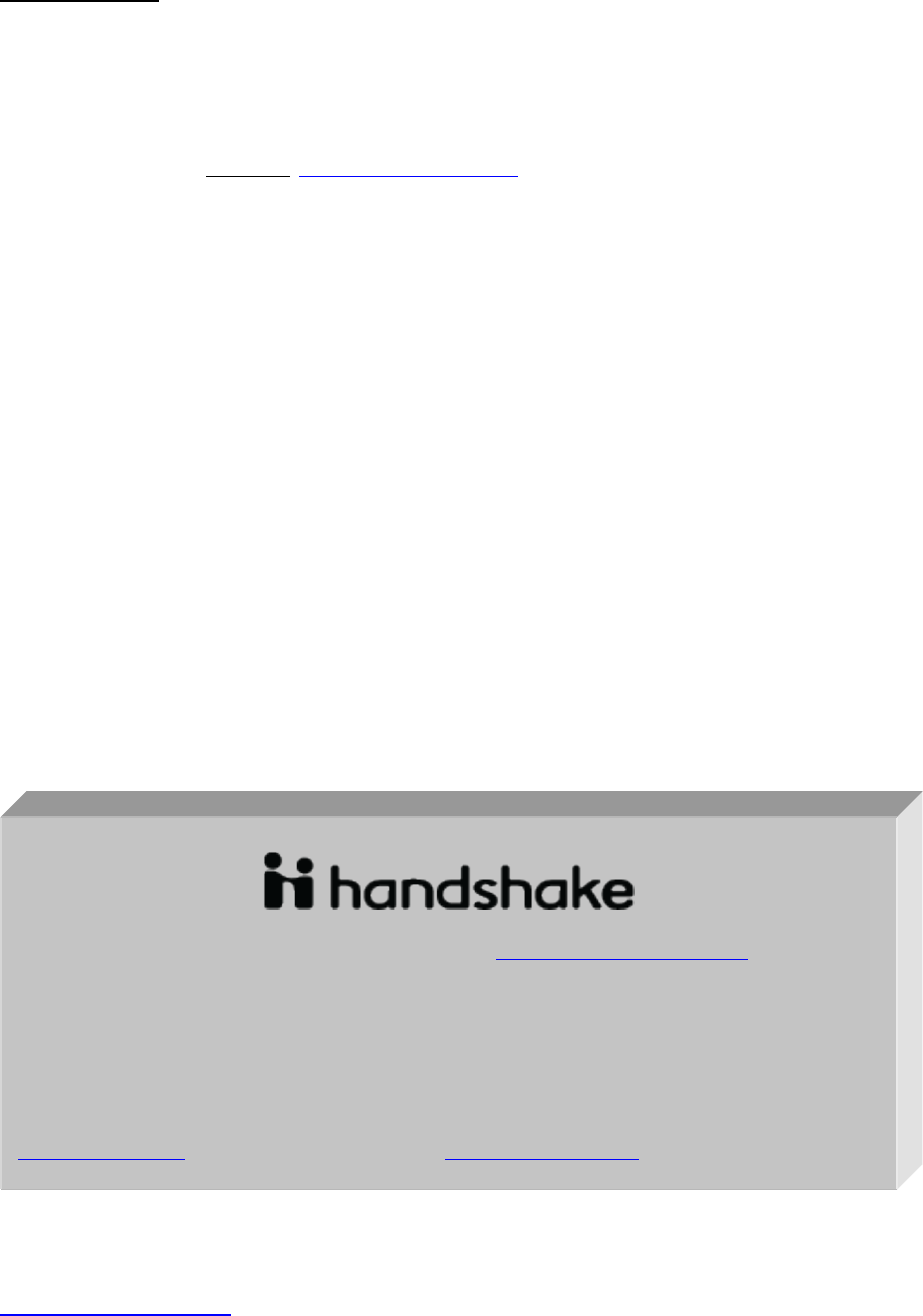
Career Planner Johns Hopkins Bloomberg School of Public Health
http://www.jhsph.edu/careers JHSPH.Careers@jhu.edu
20
JOB SEARCHING
Searching for a new job can be a daunting prospect for any professional. Securing the right position takes hard work,
research, persistence, and good instincts. Below are some strategies to help you make the most of your search efforts:
• Clarify your career goals. Take the time to evaluate what you want out of your career. What does your ideal job look like
to you? What is your career trajectory? Write your answers to these questions and keep these in mind during your search.
• Research the market. Know as much as possible about the organizations that interest you. You can find this information
through company websites, Handshake (http://jhu.joinhandshake.com
), local newspapers, state industrial directories, and
reference books. Try targeting a few companies in which you are interested (whether they are advertising or not) and
calling to see if they are hiring in the near future.
• Network. Identify and choose people to connect with. Be thorough and creative in compiling your list of people to
contact. Begin with people you know faculty, classmates, former employers and colleagues, family members, and alumni.
Collect new contacts; develop relationships. Create advocates for yourself to be aware of opportunities on your behalf.
Develop a networking plan: make calls, send emails and letters. Have business cards printed and with you at all times.
• Location vs. Industry. A question to ask yourself - is geographic region more important to me or is the industry/company
more important to me? An answer to this question may help you to decide between what you want and what you’re
willing to accept.
• Reverse pyramid. Consider starting your job search broadly at first and then narrowing it down as you progress further
in your education and training.
• Brush up on skills. Online courses can help you stay current. You might also want to evaluate how your soft skills could
be improved; consult friends, former colleagues, or career staff for tips.
• Make your case in writing. Ensure that your resume and cover letter are error-free – ask a career services staff member
to double-check both for spelling and grammar.
• Consider temporary employment. Professional-level temporary assignments enable you to work for companies of all
sizes and across many industries. You'll gain valuable experience that just might help you land your next job.
Searching for a position is full-time work in itself. By following the suggestions above, you'll be well on your way to
clarifying your career goals and building skills that will serve you well in your next job –and future jobs.
Advance your career with
Handshake - http://jhu.joinhandshake.com
Handshake is the new university wide platform to:
• Connect with career services staff and resources
• Find jobs and internships
• Learn about recruitment events, career fairs and professional development opportunities
• Access information on over 50,000 employers
For more information and assistance in accessing the system, contact JHU Handshake Support Team at
handshake@jhu.edu or the Career Services Office at J[email protected]
.

Career Planner Johns Hopkins Bloomberg School of Public Health
http://www.jhsph.edu/careers JHSPH.Careers@jhu.edu
21
JOB SEARCH STRATEGIES FOR INTERNATIONAL STUDENTS
International students are encouraged to include skills assessment in the job search process while completing academic
studies. Visit the Career Services Office to find out what services are available to you. Talk with a career coach who can
help identify your skills, interests, and abilities and assist you with identifying what jobs might be appropriate. In addition,
you can discuss the best strategy for translating previous overseas experience.
Internships
An internship experience in the U.S. enhances your skills and adds American work experience to your credentials. In
addition, it provides valuable networking contacts with potential employers and professionals in your field and gives you
exposure to the work environment of an American or multinational company. Similar benefits accrue for students who
pursue work experience in other countries or at home.
Rules of the American Job Search Process
For positions in the U.S., begin eight to ten months in advance of the date you wish to be employed. This will help you to
become familiar with the American job search process and allow adequate time to research employers, develop job search
skills, and conduct the search. Meet with a career consultant to discuss goals and plans for your job search. Take
advantage of the workshops offered throughout the academic year to develop your job search skills and gain confidence in
American-style interviewing.
Hiring in the U.S.
Meet with an international student advisor in the Office of Office of International Services at Medical Institutions, to learn
about regulations governing practical training and employment, and prepare to educate potential employers about visa
issues and practical training. Some employers may be reluctant to hire individuals who are not permanent residents or
citizens of the U.S. because:
• They have government contracts which preclude hiring non-U.S. citizens.
• They view the process of understanding and working with immigration laws and visas as too complex.
• They have a wealth of other qualified candidates from which to choose.
Be prepared to answer these questions: “Why should I invest time and resources in hiring you for only twelve months of
practical training?” “What happens after practical training ends?” “Are you willing to return to your home country or
Office of International Services (OIS)
http://ois.jhu.edu/
The Office of International Services (OIS) is the sole unit at Johns Hopkins dedicated to providing
consistent, exceptional immigration services and international programming support for all Johns Hopkins
divisions and their international students, scholars, faculty, researchers, and staff in the United States. OIS
serves over 3,300 international students from more than 130 countries, as well as over 3,000 international
visiting scholars, faculty, researchers, staff, and their dependents annually through our five service
locations at Harbor East, Homewood, Medical Institutions, Peabody Institute, and Washington, D.C.
OIS @ Medical Institutions
General questions: internationalservices@jhmi.edu
F-1 and J-1 Student questions: intl-students@jhmi.edu
J-1 ECFMG Alien Physicians: [email protected]
Want to Talk with an Expert?
By Phone: 667-208-7001
Advisors are available by phone Monday, Tuesday, Thursday and Friday 9am-12pm and 1pm-4pm. General
hours of operation are Monday through Friday, 8:30am - 4:30pm.
Stay Informed and Stay Connected
The OIS is committed to keeping our students, faculty and staff informed about updates or changes in
immigration, as well as changes in institutional policies or practices. From our latest blog post, to
presentations, the OIS will continue to update the News and Event Calendar
section with pertinent
information and announcements. Be sure to visit the follow pages regularly to stay in the know!

Career Planner Johns Hopkins Bloomberg School of Public Health
http://www.jhsph.edu/careers JHSPH.Careers@jhu.edu
22
relocate to another country?” Appropriate responses impact the outcome of the interview. Remember to apply for a
social security number. This is a requirement if you are considering employment in the U.S.
Employer Expectations
Make sure you understand the cultural dynamics and overall expectations of working in an American organization. U.S.
employers expect their employees to be hard-working, creative, problem solvers, and independent workers as well as
team players. The ability to communicate well is important. In addition, employers appreciate a professional style of
dress and personal interaction that is direct and assertive, not aggressive. Work with a Career Services coach to better
understand American employer expectations and attitudes and become familiar with this type of work environment.
Start a Networking Campaign
While you may have excellent credentials and an impressive academic record, you will need to find contacts that can assist
you in your job search. Do not ignore direct sources of finding a job such as internet advertisements or job fairs. You will
find that personal contacts (family, friends, faculty, classmates and alumni) can help you discover valuable opportunities
and introduce you to prospective employers. Look for expatriates and tap into their cultural network. It is also helpful to
seek out professional organizations such as the American Public Health Association (APHA) and the Association of Schools
and Programs of Public Health (ASPPH).
Use Other Job Search Strategies for U.S. and Home Country Employment
Campus Interview Program: Several employers participate in our on-campus interviewing program
International Student Groups or MPH Societies (J.B. Grant)
Your Country’s Embassy in Washington, DC
Direct Contact with Employers through Letters, Calls, Informational Interviewing
You may not get the first, second or even fifth job for which you have applied or interviewed, but do not take this as a
personal rejection. To increase your competitiveness, use all you have learned in the job search process to present your
capabilities effectively. In addition to your experience (internationally and in the U.S.) and your language skills, do not
forget to emphasize your academic experience received through work on major projects, papers, etc. Remember, any
information that signals unique or special talents will help you stand out in a prospective employer’s eyes. Don’t delay.
Start the process as soon as possible. Come to the Career Services Office to speak with a career coach.
Passport Career
Passport Career
TM
is an online, country-specific, global job search platform designed for use by organizations
looking to support the international career transitions of their mobile employees (as well as their
spouses/partners) and by academic institutions looking to support the international career transitions of students,
scholars, faculty, and their spouses/partners. Passport Career
TM
offers unique content and unmatched resources
for over 80 countries and 250 cities. Passport Career
TM
is a ground-breaking initiative that shifts the global career
support industry from the traditional brick-and-mortar businesses and single channels of information (such as
career counselors and coaches) to an interconnected e-platform that provides a complex set of services in a user-
friendly, easily accessible format.
Passport Career’s unique global job search platform not only provides access to jobs in over 80 countries and 250
cities, but also includes extensive country profiles, helpful global career-oriented articles, and effective self-
marketing strategies not provided by other job search resources. Passport Career
TM
also offers monthly career
training events (in webinar format), a unique social network, an online help desk, and more.
Passport Career
TM
includes the following:
• International Career E-Platform
• Resume and CV Support
• Career Coaching
• Interactive Career Tools
• Global Career Blog
For more information and access to the system, contact Career Services at (410) 955-3034 or
.

Career Planner Johns Hopkins Bloomberg School of Public Health
http://www.jhsph.edu/careers JHSPH.Careers@jhu.edu
23
INTERVIEWING
An interview is your opportunity to show a potential employer that you are the right person for the position. The employer
is attempting to gauge whether you will fit into the organization’s culture. They want to know how interested you are in
doing the work and if you can be counted on to get the job done. If you are being called into an interview, then it means at
least two things: you have the minimum qualifications and someone thinks you can do the job. The key to successful
interviewing is convincing the interviewer(s) that you’re the “right fit” for the job.
The best interviews are ones that evolve into a conversation about you. If you get to this point, hopefully your
conversation will begin to center around your passions and interests. If your interview is just question, then answer,
question, then answer, it might not be going so well. Having this conversation about you is important because interviews
are all about how your personality is going to “fit” into an organization’s culture, a team’s group dynamics, and a
supervisor’s working style. The interviewer really is trying to dig at or probe into what type of personality you have so it is
best to act as natural as possible to allow your true personality to come out.
PRIOR TO THE INTERVIEW
Research the Organization
You should prepare carefully for the interview by researching information about the organization, its projects and its
mission or philosophy. Your research should help you generate questions that you can ask during the interview.
Your research should focus on (but not be limited to) the organization’s:
Research Yourself
You should be prepared to have a quick summary of your qualifications, tailored to the position, which you can use to
introduce yourself and answer the “tell me about yourself” question. This should be based on the information in the
profile on your resume and not a historical recount of your resume (“First I got my degree in…then I went to work for…).
Interviewing and Image
• 60% of an interview is the way you look (are dressed)
• 30% of an interview is the way you physically present yourself (body language)
• 10% of the interview is what you have to say
Physical Appearance
Video Interviewing
Over the past year, more employers have been utilizing virtual technologies like Zoom, Microsoft Teams and WebEx to
interview candidates. These technologies allow for more meaningful connections instead of phone calls. You should be
prepared for these types of interviews since they are not going away anytime soon. Below are tips to help you prepare:
• Test your technology ahead of time (microphone, webcam, etc.)
• Setup a distraction-free area. Eliminate visual distractions near you and behind you.
• Be on-time but not early. Employers might be video interviewing multiple candidates. Show up 2-3 minutes
before the scheduled interview time.
• Choose interview outfit wisely. Same as in-person interview. Dress professionally (at least from the waist up).
• Double-check the date, time and most importantly the TIME ZONE! Check the email from the employer and
confirm the appointment time the day before.
• Location(s)
• Facilities
• Size
• Products and services
•
Financial data
• History
• Executive biography
• Management and employee data
• Mission, vision, strategies and goals
• Recent news and announcements
Women’s Image Wardrobe
• Wear a skirt and jacket (matched or unmatched) or
a dress and jacket in plain style (pant suit is OK)
• Wear fashionable shoes, preferably heeled, and
always tights or stockings
• Makeup should be discreet and carefully applied
• Avoid dangly earrings, clanking bracelets and floppy
scarves that can be distracting
• If you have loops on your dress/skirt, wear a belt
Men’s Image Wardrobe
• It is generally wise to wear a dark suit
and a lighter shirt and a dark tie (avoid
garish patterns and bow ties)
• Wear dark colored shoes and they must
be polished.
•
Wear a matching or dark colored belt.
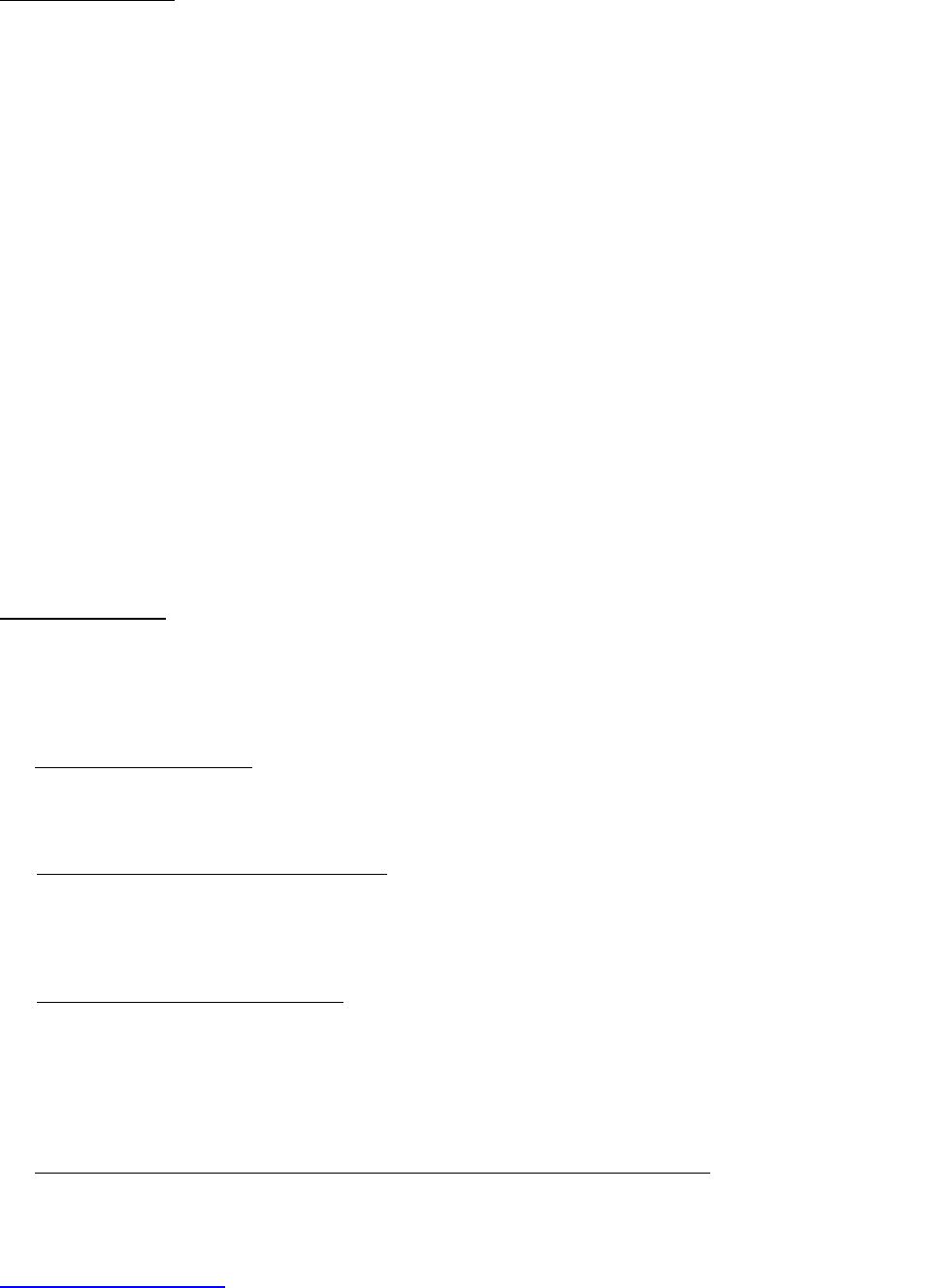
Career Planner Johns Hopkins Bloomberg School of Public Health
http://www.jhsph.edu/careers JHSPH.Careers@jhu.edu
24
DURING THE INTERVIEW
During the interview be sure to speak clearly and concisely. Make sure that you are speaking with confidence and that you
are maintaining good eye contact with all interviewers. In addition, pay close attention to your posture and non-verbal
communications. Do not fidget or use your hands excessively while speaking. These things distract interviewers and take
away from your presentation.
Body Language
Body Language
TOP 10 INTERVIEWING TIPS
1. Research the company and industry beforehand.
2. Read the job description thoroughly.
3. Look the part – dress for the position and the company.
4. Watch your posture and sit tall in chair. For virtual, look at the camera, not the screen.
5. Be enthusiastic!
6. Listen carefully to the question and answer the question asked.
7. Speak slowly and clearly – do not rush your responses.
8. Tell memorable stories to illustrate strengths and match your strengths to the position.
9. Highlight your experience as a team player. If asked for examples, be as specific as possible.
10. Come prepared with questions and leave something to be remembered by – articles, portfolio, etc.
Questions and Answers
Employers ask questions in many ways to explore and probe your background and skills. In addition to your stated answer
to the questions, an interviewer is also seeking answers to questions which are not ever directly asked. These are the
questions-behind-the-questions (QBQ). Let’s examine some of the types of questions you might expect in an interview as
well as examine what the questions really mean.
Open-Ended, Personal Questions
1. Tell me a little about yourself.
QBQ: “How do you view yourself?”
This question is a common opener so a short summary about you is good to use here. Start with the most current
information about yourself and go backwards from there. It is a good idea to keep your answer brief (45-60 seconds).
2. Where do you see yourself five years from now?
QBQ: “Are you going to be committed to this organization?”
This question does not need to be answered with exacting detail. You want to give the interviewer the general
direction you believe your career is heading. But you want to make sure your answer aligns with the organization you
are interviewing with.
3. What are your strengths and weaknesses?
QBQ: “How well do you know your limitations?”
This question is a very common one asked during interviews. The goal with this question is to understand and
articulate what you are good at and what you are working to get better at. Your strengths are the characteristics
about yourself which do not require much effort in order for you to do very well at. For example, “I’m very good at…”
Your weaknesses are the characteristics about yourself which require much more effort in order for you to do well at.
For example, “I have to work harder at…”
4. How do you think a friend, classmate, or professor, who knows you well would describe you?
QBQ: What is your personality type?
This question looks at how self-aware you are about your personality. It is harder for us to describe our personality,
but through the lens of different people, you can more easily describe the type of person you are.
• Enter an interview confidently.
• Hold your head up and shoulders back in a
comfortable position.
• Smile and avoid fidgeting, touching your face.
• Always make and retain eye contact with anyone
you are talking to.
• Sit upright and lean forward slightly giving the
impression you are listening to interviewer.
• Gestures such as head nods are helpful.
Verbal
• Make sure that you can be heard.
• Be aware of the interviewer’s reaction to your voice.
• Do not mumble or drop your voice to a whisper
towards the end of sentences.
• Avoid singsong or monotone recitations, which give
the impression that you are over-rehearsed.
• Also avoid slang, grunts, “ums”, “uhs”, “likes”and
any other verbal tics or filler words.
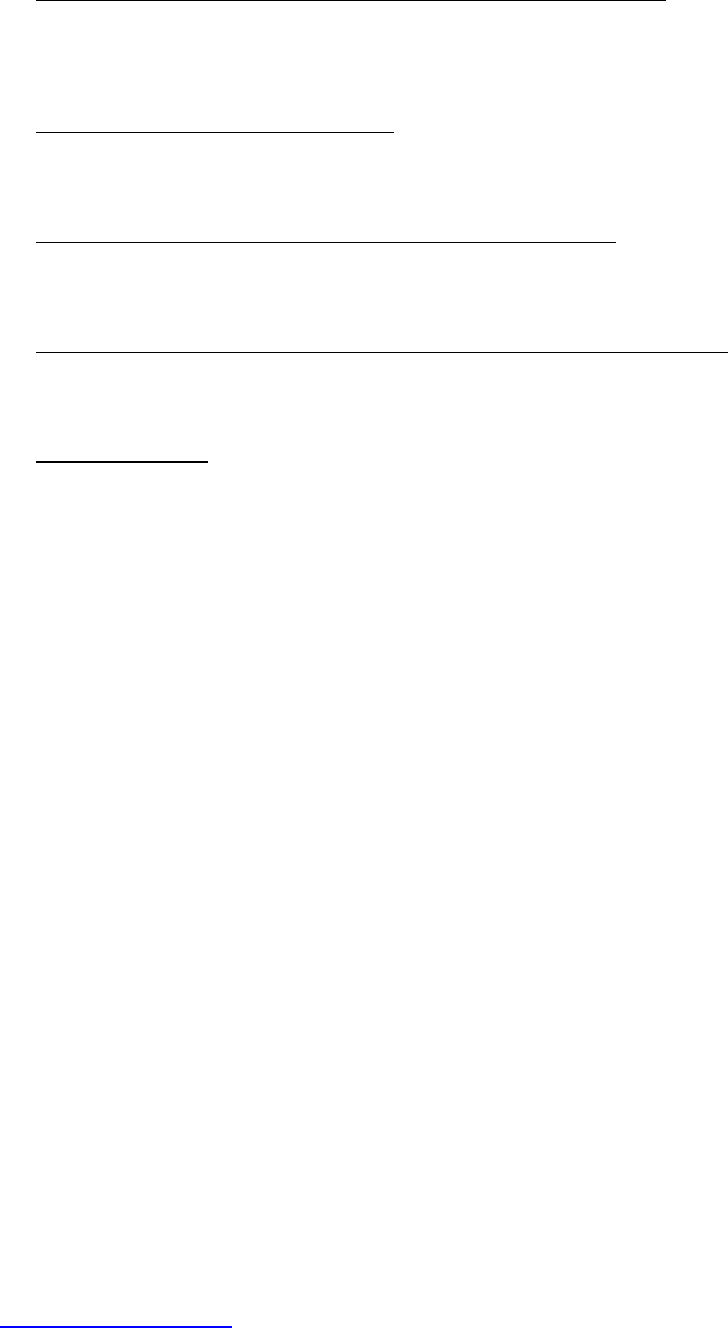
Career Planner Johns Hopkins Bloomberg School of Public Health
http://www.jhsph.edu/careers JHSPH.Careers@jhu.edu
25
5. Name two or three accomplishments have given you the most satisfaction and why?
QBQ: What is important to you or what do you value?
This question is one that can include either professional accomplishments, personal accomplishments, or both. What
the interviewer really wants to know is “What do you value?” Typically, our proudest accomplishments align with
values you hold the strongest and these same values will most likely continue as a future employee.
6. Tell me what you know about our organization?
QBQ: Did you do your homework on us?
This question will help an employer measure how prepare you are for the interview. Did you look over the website?
Do you know the mission of the organization? Do you know if the organization has recently been in the news?
7. When presented with a variety of tasks, how do you prioritize your activities?
QBQ: How do you work?
This question is a way to get some insight into your process for completing your work. How do you go about getting
your work done? Do you create to-do lists?
8. If you had the luxury of creating the ideal work environment, what would it look like to you?
QBQ: How do you like to work with others?
This question wants to find out how you might interact with your future colleagues. Also, it looks at the ways you like
or dislike to be managed.
9. Why should I hire you?
QBQ: Explain to me why you are qualified for this position?
This question typically is asked at the end of an interview. This is your final “sales pitch.” Do not be humble in your
response. You want to leave a good last impression with your interviewer highlighting everything that makes you the
top choice for the position.
Problem Solving Questions
These questions require you to solve a ‘real world’ problem. Often the organization is not looking for the ‘right’ answer,
but they would like to see the process that you use to solve the problem. Therefore, when you answer a problem-solving
question, you should:
• Listen carefully to what is being asked and ask clarifying questions (if applicable).
• Respond by first explaining how you would gather the data needed to make a decision.
• Discuss how you would use that data to generate options.
• Explain your recommendation/solution based on the data, the available options, and your understanding of the
position that you are interviewing for currently.
Unrelated Questions
These questions are asked to probe your thought process and how you make decisions. They generally have nothing to do
with the qualifications for the position. Example: Who would you want with you if you were stranded on a deserted
island? - A carpenter, to ensure that we would be able to build shelter and eventually a vessel to sail from the island (thus
showing your resourcefulness).
Illegal Questions
Answering illegal questions can be a bit tricky. Most employers are familiar with the laws regarding what questions they
can and cannot ask. If you feel a question is inappropriate, don’t get upset and refuse to answer. Ask the question “Can
you tell me how that pertains to the job?” in a polite and respectful way. In the United States, there are many things that
potential employers cannot ask job candidates.
Option #1 - Refuse Completely - This method can be used if you would just rather not answer the question, or if you feel
the interviewer is going to use the answer against you. For this refusal you would say something like "That question is not
really very proper so I think we should go on to the next question."
Option #2 - Mention that the question is illegal but answer it anyway - This is option is sometimes used when you don't
really mind answering the question, but you don't like that it was asked in the context of a job interview. You are perfectly
within your right to say "I don't think that question is completely proper, but I don't mind answering. No, I am not married."
Option #3 - Just answer it - This is the simplest approach. If your answer is probably what they want anyway, then
sometimes the safest approach is to just answer the question. A job interview is no place to fix all of society's problems. If
you really want to do something, if you don't get the job, then get a lawyer and sue for the illegal questions.

Career Planner Johns Hopkins Bloomberg School of Public Health
http://www.jhsph.edu/careers JHSPH.Careers@jhu.edu
26
BEHAVIORAL INTERVIEWING
Behavioral interviewing is an interviewing technique that allows an employer to evaluate a candidate’s experiences and
behaviors in order to determine their potential for success in their organization. It is based on the belief that past
performance is the best predictor of future behavior. The interviewer identifies desired skills and behaviors and then
structures open-ended questions to elicit a detailed response. Even if you don’t have a tremendous amount of work
experience, companies expect you to be able to relate past experiences (situations from undergraduate or graduate
school, volunteer work, student activities) to the job for which you are interviewing.
How do I spot a behavior-based interview question?
They generally start with any one of the following phrases:
• Tell me about a time when you…
• Describe a situation when you were faced with a problem related to…
• Tell me how you approached a situation where…
• Think about a time in which you…
When your interview is behavioral based, it will typically be a structured interview with set questions rather than a
conversational style of interviewing. You will sometimes receive follow-up questions that probe for more details.
Some of the most common behavioral questions evaluate soft skills such as:
• Leadership Ability and Style
• Team-work and Interpersonal Skills
• Motivation and Initiative
• Communication Skills (both written and oral)
• Problem Solving Skills
• Adaptability
• Time-management Skills
• Conflict Management
• Ethics and Values
How do I prepare for a behavioral interview?
The STAR method is an effective technique for responding to a behavioral-based interview question.
Situation: Describe a particular situation that you were in or a task that you needed to accomplish. Provide
appropriate background information, and do not generalize.
Task: State the goal you were working towards.
Action: Describe the actions you took to address the situation specifically focusing on your contribution.
Result/Reflection: Describe the outcome of your actions. What did you accomplish? What did you learn?
To prepare for a behavioral interview, review the job description and highlight all the soft skills mentioned (i.e. strong
communication skills and the ability to work in a team environment). It’s almost guaranteed that you’ll be asked questions
directly related to the soft skills mentioned in the job description!
Next brainstorm scenarios from your past experiences that highlight these soft skills. Review your resume to help identify
examples. Then use the STAR method to develop a well-thought-out response to potential questions. Make sure your
response provides specific evidence of your skills and capabilities. Also, vary your examples; do not use a single situation or
experience to answer all questions. The goal is not to memorize your answer. Instead, by brainstorming and writing out a
potential response, you will be able to recall past accomplishments with more confidence!
What to Remember When Doing a Behavioral Interview
There are no wrong answers to these questions!!!! The key here is to be specific, but don’t get caught up storytelling!!
Focus on the takeaway from your answer as much as you do the telling the story. First, think to yourself, “What do you
want them to remember?” and then find a story or experience that describes it.
Possible Ways to Answer Behavioral Interview Questions:
• Share actual experience – “I remember this one time when I…”
• Predict how you would handle it – “I can’t remember a time this occurred, but this is what I think I would do…”
• Observer role (Positive Outcome) – “I have not been in that situation, but here is what I observed someone else
doing that I would follow...”
• Observer role (Negative Outcome) – “I have not been in that situation, but here is what I observed someone else
doing that I would NOT follow (or “I would do differently”) …”
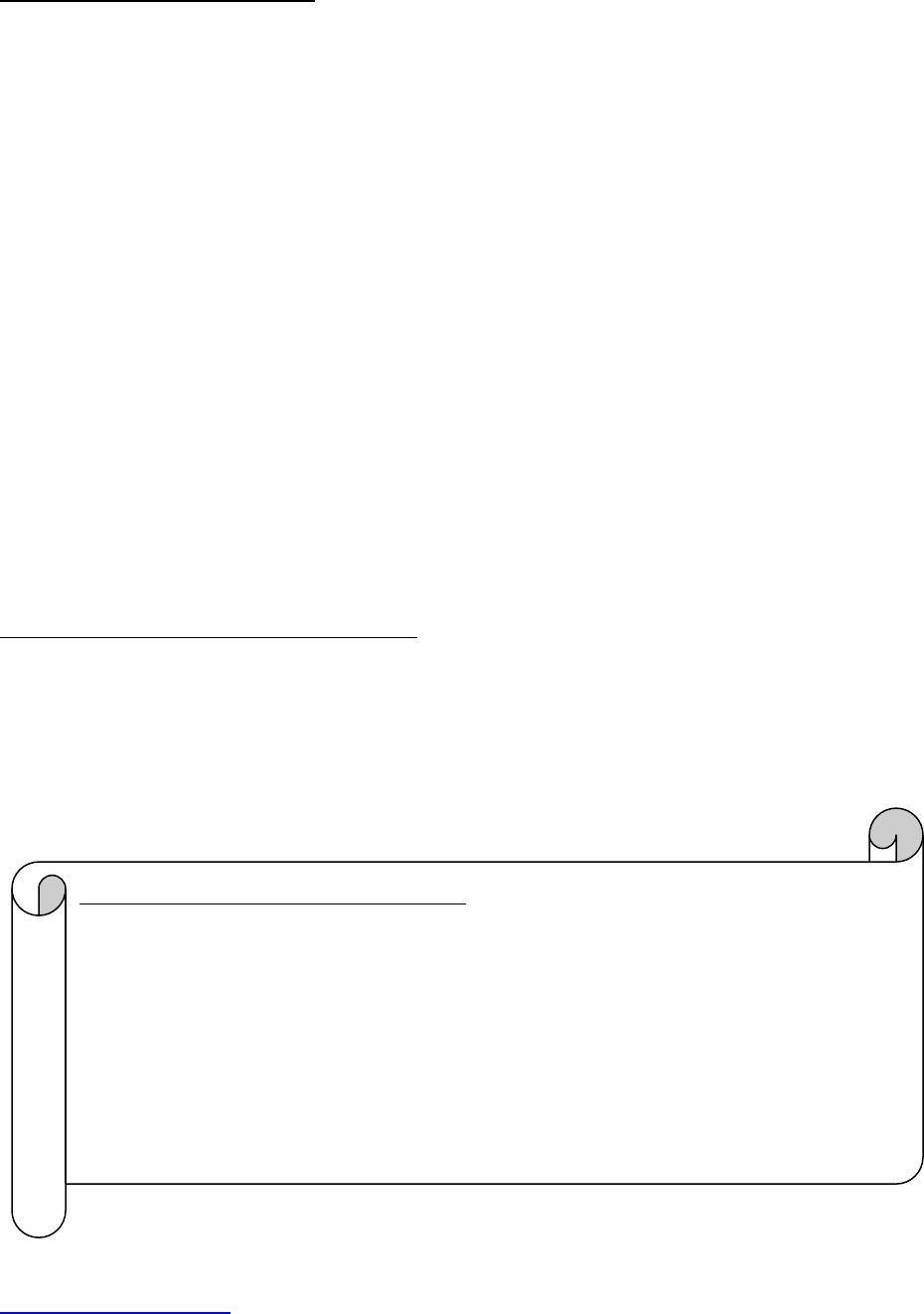
Career Planner Johns Hopkins Bloomberg School of Public Health
http://www.jhsph.edu/careers JHSPH.Careers@jhu.edu
27
PREPARING FOR A CAREER FAIR
Each year public health employers attend career fairs (including the Public Health Career Fair here at the Johns Hopkins
Bloomberg School of Public Health) in an effort to attract top talent to their organizations. Below are some tips to assist
you in preparing for a career fair.
Be sure to:
• Arrive early
• Dress appropriately
• When possible, know the interviewer’s name: pronunciation, spelling, and title (Mr., Miss, Ms., Mrs., Dr.)
• Extend a warm greeting and firm handshake
• Maintain good eye contact
• Show enthusiasm and zeal
• Display knowledge of the company, industry, position, interviewer, and job location
• Be prepared to answer and ask questions
• Turn off cell phones and remove hands free devices
Ensure that you have:
• A briefcase or portfolio, note pad, and pens
• Several resumes (more is better than less)
• Business Cards
• Toothbrush and dental floss if you are attending a career fair after lunch
• For women: Extra hosiery. If you carry a briefcase, leave the purse behind to keep your hands free
Remember to:
• Obtain the representative’s business card
• Leave your resume/CV with the representative
• Follow-up after the career fair with a thank you letter
• Make the most of the day
HOW TO INTRODUCE YOURSELF AT A CAREER FAIR
How you initiate a conversation with an employer representative is important. The first words you speak make a big
impression on a potential employer. When you meet a representative at a career fair you should greet them with a smile,
firm handshake and introduce yourself using the format below or a similar format:
1. Provide information about yourself and your education. (10-15 seconds)
2. Why you are interested in speaking with them? (10 – 15 seconds)
3. Discuss your relevant work experience. (10 – 15 seconds)
4. What are some of your accomplishments - either in the classroom or at an organization? (15-30 seconds)
38
th
VIRTUAL PUBLIC HEALTH CAREER FAIR
Sponsored by the Career Services Office, the 2022 Virtual Public Health Career Fair will take place
on Friday, March 4, 2022. This school wide event provides a convenient location for agency
representatives from around the country to meet with students, faculty, and alumni to discuss
agency functions, employment opportunities, consultancies, internships, and provide career
information for public health graduates and professionals.
To see a list of employers from last year’s Career Fair, or download a copy of the Public Health
Career Fair Student Handbook, go to http://www.jhsph.edu/careerfair.
With hundreds of students and over 80 employers participating, it’s an event you don’t want to miss!!!
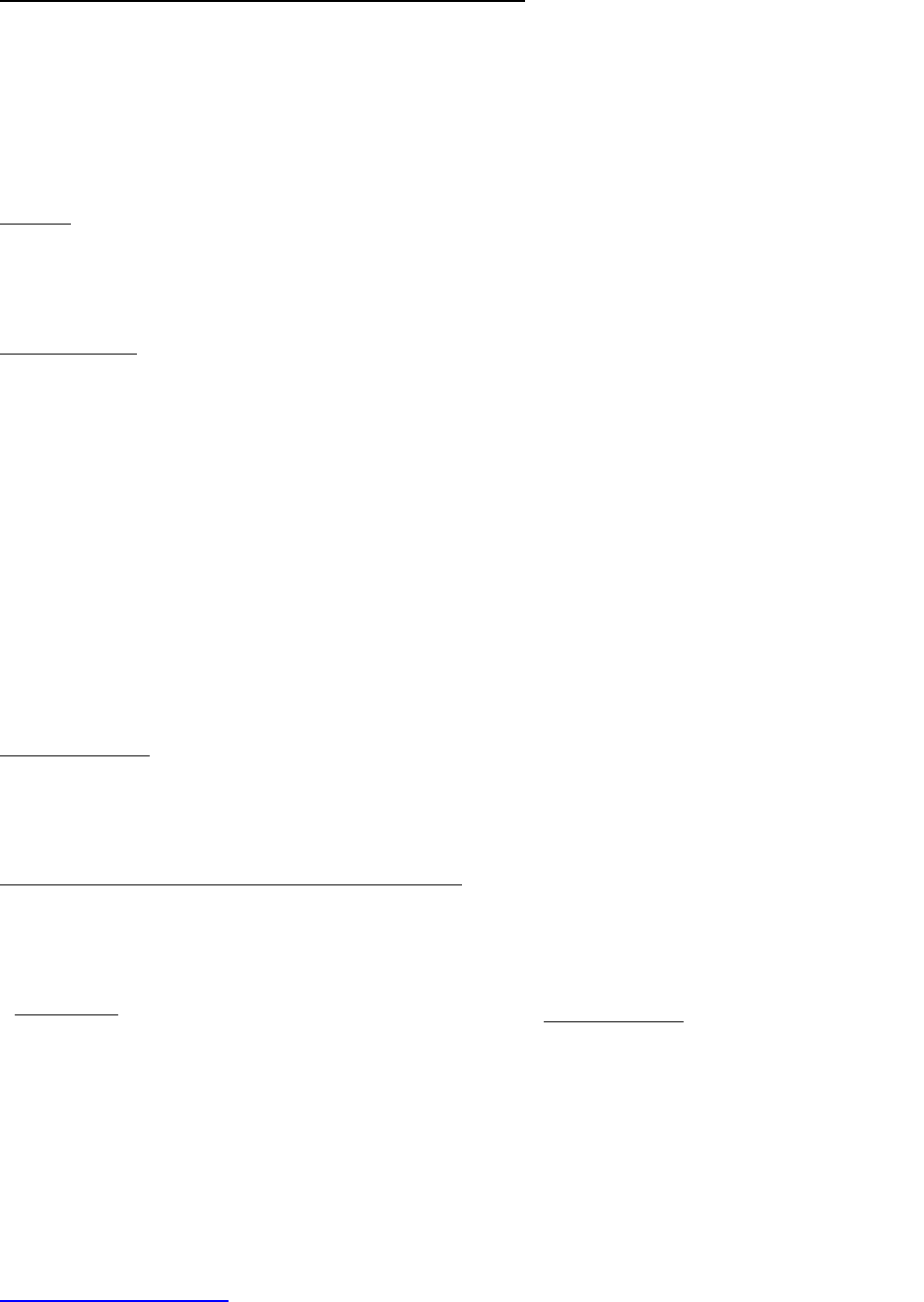
Career Planner Johns Hopkins Bloomberg School of Public Health
http://www.jhsph.edu/careers JHSPH.Careers@jhu.edu
28
HOW TO APPLY FOR INTERNSHIPS AND FELLOWSHIPS
The route to securing an internship/fellowship can be confusing and filled with pitfalls. However, it is often a journey
worth taking because your future employment may depend upon the quality of your internship/fellowship experience.
There are many considerations to explore when applying for an internship/fellowship; some of those considerations are
covered below.
THE APPLICATION
The application is the first element that most organizations look at when you apply for a fellowship/internship. Therefore,
you should give careful consideration to the application and always fill it out properly.
Deadlines
Consider the deadline date and send the application well in advance – Why? If individuals are reviewing applications as
they arrive, your application will get more consideration early in the process as opposed to closer to the deadline when
everyone else is sending their application. Remember, the most popular internships/fellowships have deadlines in the fall
and winter months (Sept. through March).
Follow Instructions
Most applications have explicit instructions to follow. These instructions may sometimes seem arbitrary to you, but to the
organization these instructions are crucial. They are expecting to receive applications in a certain way, with the proper
information included. Some organizations throw away applications that are not in accordance with their application
instructions.
Common Mistakes Include:
• Sending more or less references/recommendations than asked for
• Attaching a CV or resume in lieu of filling out the application
• Not having transcripts sent directly from your previous school(s)
• Not placing recommendations in sealed envelopes
• Not including standardized test scores
PERSONAL STATEMENT
Most organizations will generally ask for a Personal Statement (sometimes called a Goal Statement, etc). The statement is
a way for the organization to review your interests and to determine your motivation for applying for the
fellowship/internship. Also, the personal statement is the organization’s first look at your writing skills, and it should be
written with clarity using excellent grammar and spelling.
Be Concise and Clear
A personal/goal statement should be clear and easy to read. The organization should be able to view a synopsis of your
background and a summary of where you wish to be in the future. A personal/goal statement is not the time to tell your life
story, but to highlight relevant career and academic interests and how the fellowship/internship opportunity aligns with your
interests.
Highlight Your Skills…Don’t Tell Them What They Can Do for You
A personal/goal statement should convey to the organization what you bring to the table. Don’t spend a great deal of time
writing about what the fellowship/internship will do for you but show how you can make a contribution to the
organization and/or the field of study. The personal/goal statement is your opportunity to sell your skills and abilities –
take advantage of the opportunity.
Remember to:
• Include your future goals and relevant
research interests
• Answer the question: ‘Why should you be
accepted to the fellowship/internship
program?’
• Highlight only your relevant skills and
accomplishments
• Follow instructions with regards to the length
of the personal/goal statement
Remember NOT to:
• Include personal discriminating information
(such as marital status, sexual orientation,
etc), unless the requirements specifically
asked for it
• Use long sentences
• Overuse technical jargon
• Brag or fabricate
• Make mistakes with grammar and/or spelling

Career Planner Johns Hopkins Bloomberg School of Public Health
http://www.jhsph.edu/careers JHSPH.Careers@jhu.edu
29
NETWORKING FOR INTERNSHIPS AND FELLOWSHIPS
Calling or meeting people from the organization with whom
you wish to have an internship or fellowship can increase your
chances of being accepted to their program. Remember that
most people want to hire someone with whom they are
familiar. In addition, having a strong reference is an excellent
way to increase your chances of being accepted to a fellowship/
internship program. For example, if your advisor is well known,
a call from him/her to the organization may work wonders.
Contacting alumni who work for the organization can be an
excellent means of advancing your application for the
internship/fellowship.
If You Do Not Meet the Requirements
If you are interested in an internship/fellowship and you do not
meet the requirements, you may still want to apply. Exceptions
are made in some cases. If programs allow candidates to
interview before the application deadline, you should visit and
interview.
Why Do Employers Like Internships & Fellowships?
An internship/fellowship saves the employer money. It is a
cost-effective hiring process, and it is a preview of your skills
and a chance for them to see what you’re capable of. It can
result in a job offer upon graduation, if they liked you. Also, as
students, you bring in fresh ideas and you serve as a steady
flow of new talent. If you have positive experiences at the
organization, you can provide free advertising to other students
that might be potential candidates.
Finding Fellowship Resources
A majority of fellowships are going to be government or
foundation sponsored. Be sure to pay close attention to the
unique requirements and qualifications required (i.e.,
citizenship requirements). It is probably a good idea to create a
spreadsheet or organizational system to keep track of
deadlines, etc. A good place to find a list of different fellowship
sites is the Association of Schools and Programs of Public
Health (ASPPH), the Oak Ridge Institute for Education (ORISE)
and Global Health Corps.
Finding Internship Resources
While some organizations might have established some
internship programs, most do not. Approach prospective
employers directly. Don’t wait for an internship to be posted.
Identify potential employers using directories and databases,
word of mouth, and inquire about possibilities for an
internship. Inquire as to whether an internship can be created
for you. A majority of the time organizations will not discourage
“free help”, but you’ll need to be sure to create a “win-win”
situation for both yourself and the organization. Funding
sources for internships can vary from organization to
organization - some are scholarships and grants with amounts
ranging from monthly to yearly stipends, hourly rates, or pay
per project.
WINTER BREAK CHECKLIST
Take advantage of your winter break by
reviewing and following up on career and job
search activities. Here are a few things you can
do to get your job search off the ground.
• Network. Identify and choose people to
connect with. Begin with people you
know…faculty, classmates, former employers
and colleagues, family members, and alumni.
Collect new contacts and develop
relationships. Create advocates who can be
vigilant for new opportunities on your behalf.
• Research companies. Know as much as
possible about the organizations that interest
you. You can find this information through
company websites, Handshake
(http://jhu.joinhandshake.com
), local
newspapers, state industrial directories, and
reference books available in public libraries.
• Develop a strong resume and cover letter.
Have these reviewed and critiqued. Resources
can be found on the Career Services website
(http://www.jhsph.edu/careers
)
• Engage in informational interviews. Contact
alumni in the specific geographic area in which
you seek employment
(http://alumni.jhu.edu/
). Treat the
informational interview like any job interview.
Wear appropriate attire, bring questions and
resumes, and be prepared to talk about
yourself and your skills.
• Research salary ranges in your specific field
and geographic location(s) of interest. There
are many informational sources on the
Internet.
CAREER DEVELOPMENT ACADEMY
Over the winter break, the Career Services
Office, the Office of Alumni Relations and the
Office of Public Health Practice and Training will
host the “Career Development Academy – Jump
Starting Your Public Health Career.” The
Academy agenda includes alumni career panels,
networking, resumes, mock interviews, open
office hours and more. More specialized topics
include constructing a public health resume for
federal government jobs, building a professional
presence online, developing an effective
elevator pitch, proactive career planning and
how to design your life with around a public
health career. Keep a look out for this course in
either the second or third week of the Winter
Intersession.

Career Planner Johns Hopkins Bloomberg School of Public Health
http://www.jhsph.edu/careers JHSPH.Careers@jhu.edu
30
SALARY NEGOTIATION
As your job search nears completion, you will need to evaluate each job offer that you receive. In addition, you may find
that you wish to negotiate a job offer. Give careful consideration to evaluating and negotiating job offers in order to assist
in your career success. The main goal of any negotiation is to protect anything that will put money into your pocket and
protect anything that will take money of it. Listed below are some key points that can help you in this process.
Evaluating Offers
A job offer involves more than just salary. When evaluating a job offer take the total compensation package (salary,
signing bonus, benefits and perks) into consideration. In particular, you should consider benefits such as tuition
reimbursement, medical coverage, vacation time, sick leave, savings plans (401k, 403b, etc), stock options, and flexible
work practices, as well as perks such as relocation reimbursement, free movie tickets, training, etc.
Also, you should consider the organization’s culture and growth potential when evaluating a job offer. Try to develop an
understanding of how the organization operates on a daily basis. Questions you should ask are: “Is the environment
supportive?”, “Are employees valued?”, and “Can I be successful in this organization’s environment?” In addition, you
should be looking at your growth potential in the organization. Ask yourself: “Do I see myself growing in the
organization?” and “Where will I likely be in 2-5 years if I stay with this organization?”
Negotiating Offers
When negotiating salary take the following details into account:
• Never begin negotiating a job offer until you are offered the position.
Explanation: If you begin negotiating before an offer is made, you may find that the organization will not make you an offer.
• Negotiating job offers can be risky.
Explanation: Unfortunately, you may lose a job offer if you choose to negotiate the offer. Some employers rescind their
original job offer when the negotiation process begins.
• Seek to receive all job offers in writing and be cautious of employers that will not give you written offers.
Explanation: Make sure that you get offers (including new offers that are made after negotiating) in print. A verbal offer
cannot be verified and can be changed.
• Research the organization before negotiating in order to find out the salary range for the position you are seeking.
Explanation: Organizations (even those in the same industry/field) provide compensation at different levels. Do
research to find what the organization normally offers for the position you are seeking.
• Remember some offers are not negotiable.
Explanation: Do not be surprised if an organization does not allow you to negotiate an offer. Some organizations have a
strict policy when it comes to compensation.
• Ask questions about benefits that are not stated in the offer such as tuition reimbursement, etc.
Explanation: Be sure that you have all the information possible on the benefits of the job offer. Some benefits may not
be explained in the job offer and you should search for clarity on the benefits that you can expect to receive.
• Know what you are worth in the current job market.
Explanation: Understand the value of your skills in the current job market. This will help you understand your
negotiating power.
• Never lie during job offer negotiation and use discretion.
Explanation: Lying during the negotiation process can catch up to you. Many employers will ask to verify the
information that you have told them. In addition, be careful with disclosing too much information and over-negotiating.
• Timing can be extremely important.
Explanation: Considering that the organization is making a business decision in hiring you, take into consideration that
they are expecting you to make a timely decision and to keep them informed of your employment status/decision.
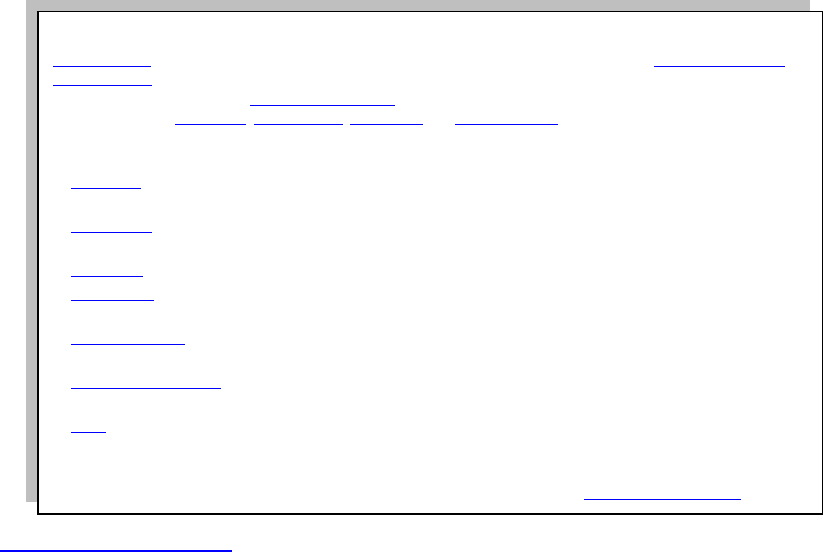
Career Planner Johns Hopkins Bloomberg School of Public Health
http://www.jhsph.edu/careers JHSPH.Careers@jhu.edu
31
THE PROCESS
1. Begin by stating your interest in the position and how well your skills match the qualifications of the position
Start the conversation on a positive note. For example: “I was excited to receive the job offer, and I am very
interested in the position. I feel confident that my communication and analysis skills will allow me to make a positive
contribution to the organization.”
2. State your position
Build your case for desiring to negotiate the offer. Some scenarios for building your case may be:
i. Based on your research of the cost of living and/or the market value for your skill set, you found that you need
more compensation
ii. Based on other job offers that you received you found that your market value is higher than what you have
been offered by the organization
iii. Based on the shortage of individuals in your chosen field you found that you are worth more than what the
organization offered
iv. Based on your current situation you find that you need to negotiate your start date and/or benefits package
3. Ask the employer if they can provide more compensation
After stating your position, ask the employer if they can provide additional compensation. For example: “After doing
research on the cost of living in New York, I found that the total compensation of the offer will not allow me to secure
an apartment and live in the surrounding area. Is there anything else you can do in terms of the offer?”
4. When asked, state an acceptable salary range
Be careful not to give an exact salary figure. State a salary range. For example: “I would be interested in an offer
between $65,000 and $75,000.”
5.
Work on creative solutions if necessary
Be prepared to be involved in creating the solution. The organization may ask you to provide options for them to
consider when negotiating the job offer. Consider all angles including benefits, perks, signing bonuses, relocation
expenses, etc. For example: “I would consider accepting a lower salary if the organization could provide relocation
expenses and tuition reimbursement.”
Points to Remember
• Seek to create a win-win situation • Know when to stop negotiating
• Never fabricate information • Understand your needs and the needs of the organization
• Stop interviewing once you accept an offer • Write a letter of acceptance to formally accept the offer
Reimagine JHU
Reimagine JHU is a united effort of every school's career department as well as the offices of Integrative Learning
and Life Design, Undergraduate Research, University Experiential Learning, Study Abroad, Hire Hopkins and Hopkins
Connect. This website offers a step-by-step approach to career planning with easy-to-use online tools and resources
meant to help you get curious, talk to people, take action and show your work to accomplish your career goals.
By using your JHED ID, you will have to exclusive access the following career development resources:
• CaseCoach - CaseCoach is an online tool jobseekers can use to help prepare for applications and case interviews
in various industries.
• Forager One - ForagerOne connects students with faculty for integrative learning opportunities, enables faculty
to build their research teams, and equips administrators with data-based actionable insights.
• GoinGlobal - GoinGlobal helps new and experienced job seekers find opportunities both at home and abroad.
• Imagine PhD – Imagine PhD is a free online career exploration and planning tool for PhD students and
postdoctoral scholars in the humanities and social sciences.
• LinkedIn Learning - LinkedIn Learning is an online educational platform that helps you discover and develop
business, technology-related, and creative skills through expert-led course videos.
• Skillsoft Online Courses - Skillsoft offers e-learning courses to help students develop business, leadership,
communications, and technology skills in preparation for a variety of careers and work environments.
• Vault - Vault Guides are used research jobs paths, companies, industries and more. Vault has been gathering
unbiased, insider information and data about companies, industries and specific jobs for more than 12 years.
For more information and how to access to the system, contact Career Services at [email protected].

Career Planner Johns Hopkins Bloomberg School of Public Health
http://www.jhsph.edu/careers JHSPH.Careers@jhu.edu
32
FOLLOW-UP LETTERS
Why do you send follow-up letters?
Follow-up letters are critical in today’s busy world. These letters show that you are professional and interested in the
organization, position, etc. The letters also keep consistent contact with your networking contacts, which puts you in a
better position to be considered for career opportunities.
Types of follow-up letters
• Thank You Letter
• Acceptance Letter
• Declining Offer Letter
• Response to a Rejection Letter
• Withdrawal of Application Letter
Send the appropriate follow-up letters to anyone who has:
• Referred you to employers or other contacts
• Interviewed you for employment
• Offered you a position
• Rejected you for employment
• Provided you with general information
• Written recommendations for you
Timing
• In most cases follow-up letters should be sent within 24-48 hours of the interview, conversation, receipt of letter, etc;
but no more than three business days later.
Length of your letter
• Keep it to a brief page. Don't stress a lot of details - it's more important to send something quickly rather than to delay
doing it for days.
Personalize each letter
• When interviewing with several people at one organization, take a few seconds between interviews to write down some
notes about each conversation. Use these notes when writing individualized thank you letters to each interviewer.
• When sending letters to several people at an organization, each letter does not need to be completely different from
the rest. However, do not send identical letters to several people - your letters will generally all end up in your file in the
Human Resources department.
Other tips
• Ask for your interviewers' business cards, or write down the interviewers' titles and the proper spelling of their names
before leaving the interview site.
• Carefully proof read each letter and have one other person do so, too.
• Print each letter on a high quality linen or bond paper (available at most copy centers), in white, off-white, cream or
light gray, and mail them in matching envelopes.
Letters - E-mail vs. Postal Mail
• In a survey by the National Association of Colleges and Employers (NACE), employers were asked if thank you letters
could be sent by e-mail. Three out of the four employers responding said that an e-mail thank-you note is acceptable.
• You can get your thank you letter out immediately via email, rather than waiting for it to be delivered by the postal
service. If there is no sense of urgency, you may still want to send a quick email thank you followed by a traditional
letter or note.
• Proofreading is just as important in an email as it is in a traditional letter. Be sure to check spelling, grammar, typos, etc.
Also, keep a copy in your Out mailbox or cc: yourself so you have a copy of each message you've sent.

Career Planner Johns Hopkins Bloomberg School of Public Health
http://www.jhsph.edu/careers JHSPH.Careers@jhu.edu
33
Thank the person for his or her time and state your interest (or non-interest) in the job and your enthusiasm for the
organization. Whenever possible, say something that will help your interviewer remember you as an individual from
amongst all the candidates:
1. Addressing a topic of particular interest (to the interviewer or to you) that arose during the conversation, especially
where that topic reflects favorably on your job-related skills (for example, you talked for 15 minutes about the
mountaineering trip you led last summer or your research on the health care industry);
OR:
2. Addressing an interviewer's specific concern in greater detail than was possible during the actual interview (for
example, the interviewer seemed concerned that you did not have the quantitative skills necessary for the job);
OR:
3. Re-emphasizing a skill or strength important to that interviewer (for example, the interviewer showed a particular
interest in your research and publications activities).
454 N. Baltimore St
Baltimore, MD 21205
April 2, 2022
Ms. Jessica Agency
Recruiting Specialist
ABC International
Any Address
Anywhere, Any state, Any zip
Dear Ms. Agency:
Thank you for taking the time to interview me for the position of Senior Clinical Project Manager with
your organization. Your discussion of upcoming public health trends at ABC International, as well as
the expectations of clinical managers, was very informative and interesting. I am confident that I
would make a strong contribution to your staff by increasing the efficiency in the labs and expanding
your research program.
As discussed in our interview, my qualifications that would directly relate to your company include:
• Over four years of broad-based experience in the medical field,
• My ability to effectively handle many different projects simultaneously, and
• My experience working with medical doctors and other clinicians.
Again, thank you for taking the time to consider my candidacy. If there are further questions, please
feel free to contact me at (410) 955-1111 or via email at astudent@jhu.edu. As we discussed, I look
forward to hearing from you the week of May 5, 2022 with your final decision.
Sincerely,
Any B. Student
Thank You Letter Sample
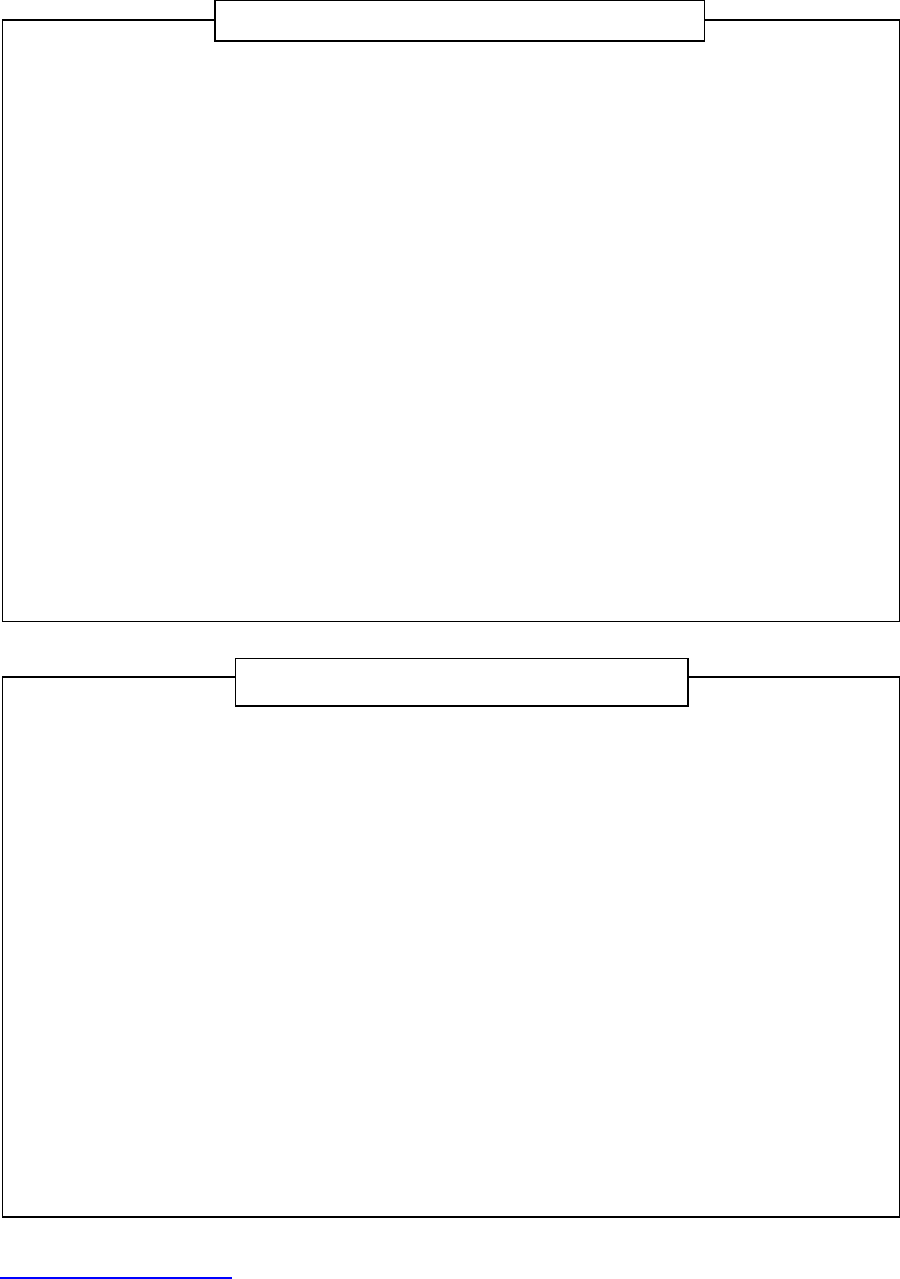
Career Planner Johns Hopkins Bloomberg School of Public Health
http://www.jhsph.edu/careers JHSPH.Careers@jhu.edu
34
Follow-up Letters
Follow-up letters should be sent via mail to present a professional image. Here are samples of different letters.
February 20, 2022
Mr. Joe Jones
Executive Director
XYZ Government Agency
555 Executive Lane, Washington, D.C. 20211
Dear Mr. Jones:
It is with great pleasure that I accept your offer of employment as a Senior Epidemiologist at XYZ Government Agency
at the salary of $85,000 and a start date of June 1, 2022. I am confident that I will make a strong contribution to your
staff by performing expert analyses.
I appreciate your help and all the information that you have given me. It will make my upcoming transition to your
company successful. Throughout the interview process I found the individuals at XYZ Government Agency to be very
knowledgeable and I look forward to working with you and other XYZ Government Agency employees in the future.
Thank you again for your assistance during the interview process.
Sincerely,
Jane M. Doe
Jane M. Doe
ACCEPTANCE LETTER SAMPLE
February 20, 2022
Mr. Joe Jones
Executive Director
XYZ Government Agency
555 Executive Lane, Washington, D.C. 20211
Dear Mr. Jones:
Thank you for extending an offer to me for the Research Scientist position with XYZ Government Agency. After much
consideration, I am declining your offer to accept a position that I feel is a better fit for my career goals.
I appreciate your help and all the information that you have given me. Throughout the interview process my
excitement about XYZ Government Agency grew and I found the individuals at XYZ Government Agency to be very
knowledgeable and happy to be employed there. Again, I appreciate your time and consideration.
Sincerely,
Jane M. Doe
Jane M. Doe
DECLINING OFFER LETTER SAMPLE
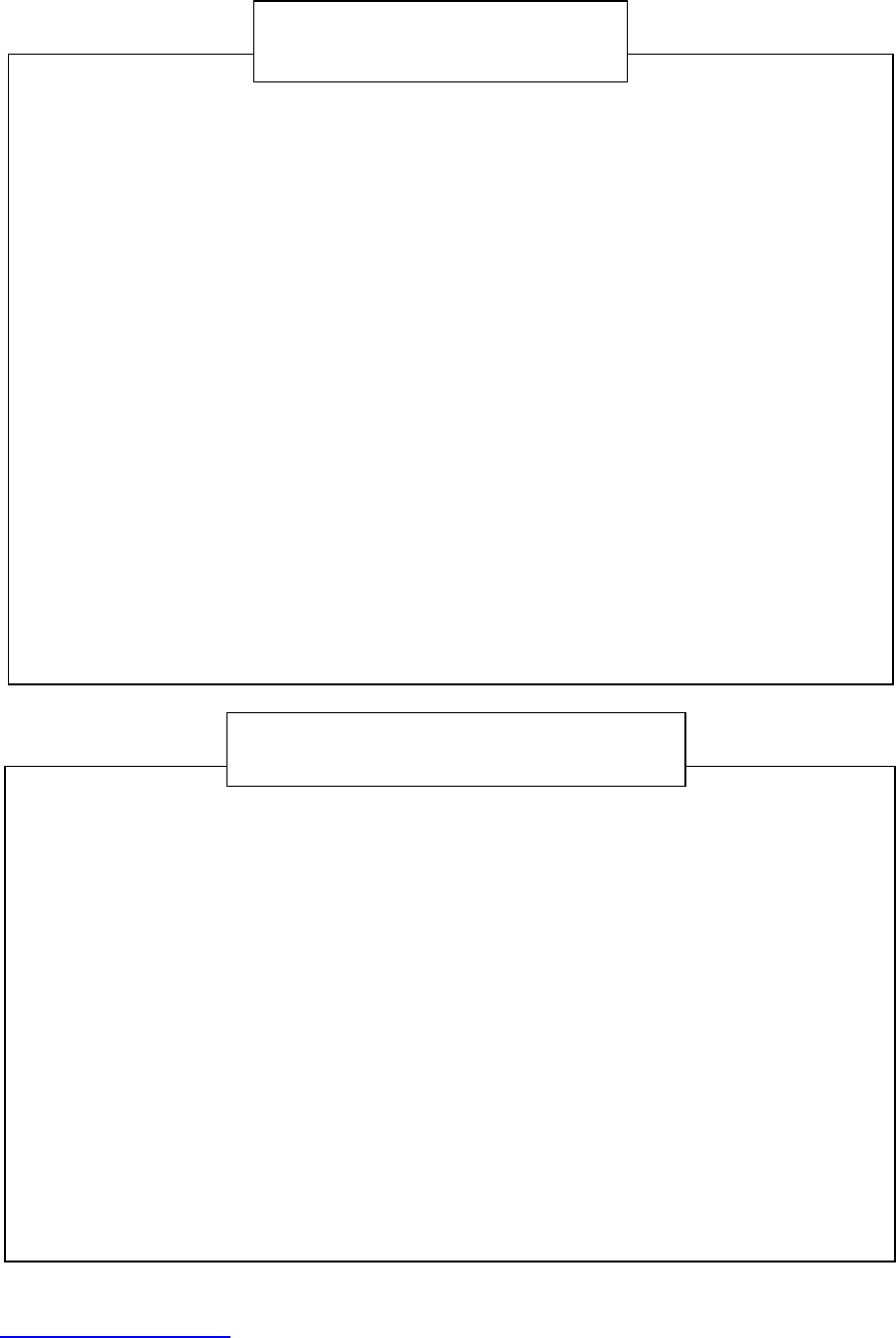
Career Planner Johns Hopkins Bloomberg School of Public Health
http://www.jhsph.edu/careers JHSPH.Careers@jhu.edu
35
February 20, 2022
Mr. Joe Jones
Executive Director
XYZ Government Agency
555 Executive Lane, Washington, D.C. 20211
Dear Mr. Jones:
Thank you for allowing me the opportunity to interview for the Health Care Analyst position. I appreciate your
assistance during the interview process and all the information that you have given me. Throughout the interview
process my excitement about XYZ grew and I found the individuals at XYZ Government Agency to be very
knowledgeable and happy to be employed there.
Although I was not the candidate you chose for this position, I am still excited about XYZ Government Agency and if
possible, I would like to be considered for future opportunities. Again, I appreciate your time and consideration.
Sincerely,
John M. Doe
John M. Doe
RESPONSE TO A
REJECTION LETTER SAMPLE
February 20, 2022
Mr. Joe Jones
Executive Director
XYZ Government Agency
555 Executive Lane, Washington, D.C. 20211
Dear Mr. Jones:
Thank you for allowing me the opportunity to interview for the Health Educator position. At this time, I do not wish to
pursue the potential of future employment at your company. Again, I appreciate your time and consideration.
Sincerely,
John M. Doe
John M. Doe
WITHDRAWAL OF
APPLICATION LETTER SAMPLE
